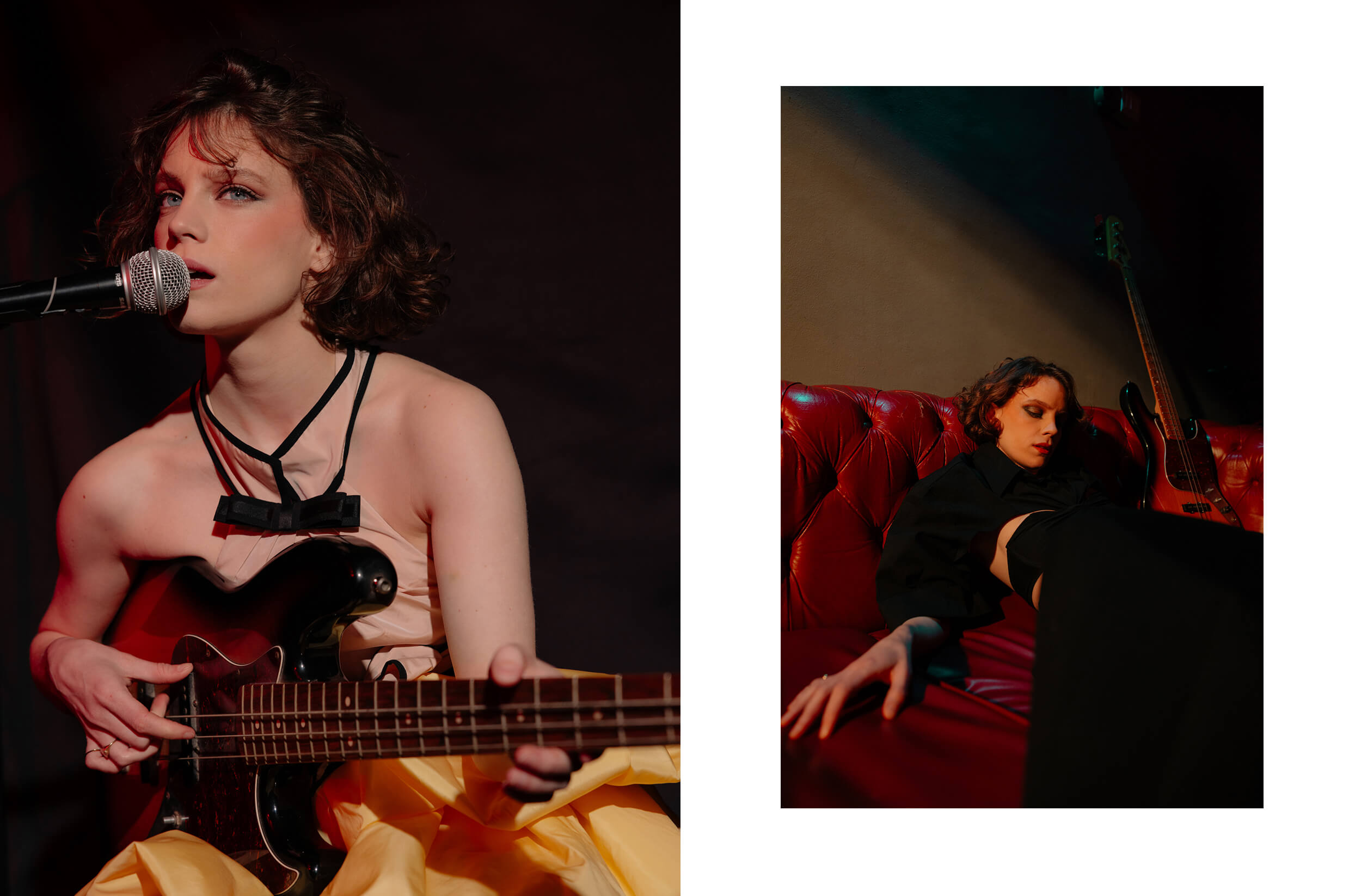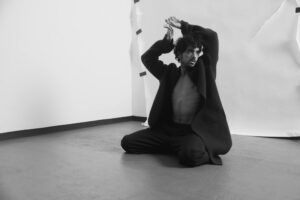Two years after our last chat, Carlotta Gamba hasn’t changed a bit, despite the numerous projects that have enhanced her fame and career over time. She remains the humble, kind, and brilliant person I remembered, wise and passionate as only true artists can be. This time, as our May Cover Story, Carlotta takes us back in time with her latest film “Gloria”, directed by Margherita Vicario. Set in the vibrant heart of the 1800s, an era steeped in tradition and rigid hierarchies, the story transports us to the religious institute of Sant’Ignazio. Here, historical context merges with musical and social revolution in a series of solemn and extraordinary events.
Carlotta reveals the behind-the-scenes secrets of this production, where past and present blend in a crescendo of emotions. With a deep understanding of her role, she embodies the rebellious and courageous soul of the entire film as Lucia, one of the young women determined to break the chains of oppression and make their voices resonate through the revolutionary notes of “pop” music.
Do you remember the exact moment you decided that cinema would be such an important part of your life?
I immediately think of my first experience on set. Since I was a child, I’ve always watched films and gone to the theater. I studied theatrical acting, and indeed, my initial dream was to work in theater. So, when I got close to cinema, that is when I became part of that world with “America Latina” by the D’Innocenzo brothers, which was my first film, there on set, seeing everyone work, seeing the brothers work, I found it to be a wonderful reality, in contrast to many people who do theater and study theater who are a bit skeptical when it comes to cinema. For me, cinema and theater are two distinctly different things, but certainly when I had the fortune to meet the D’Innocenzo brothers who make a specific genre of cinema and when I discovered how they do it, I said to myself, “Ok, I need to stay here”.
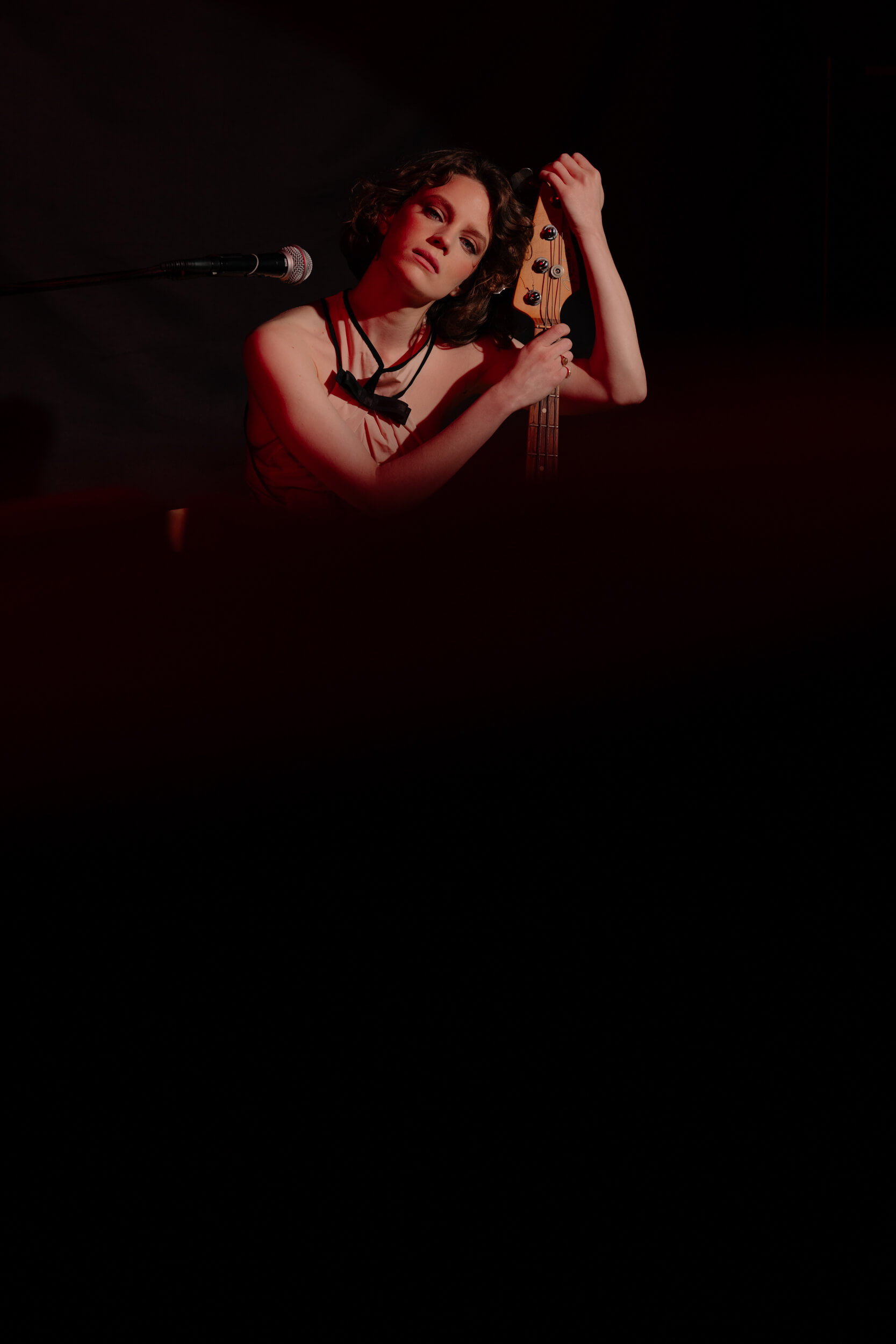
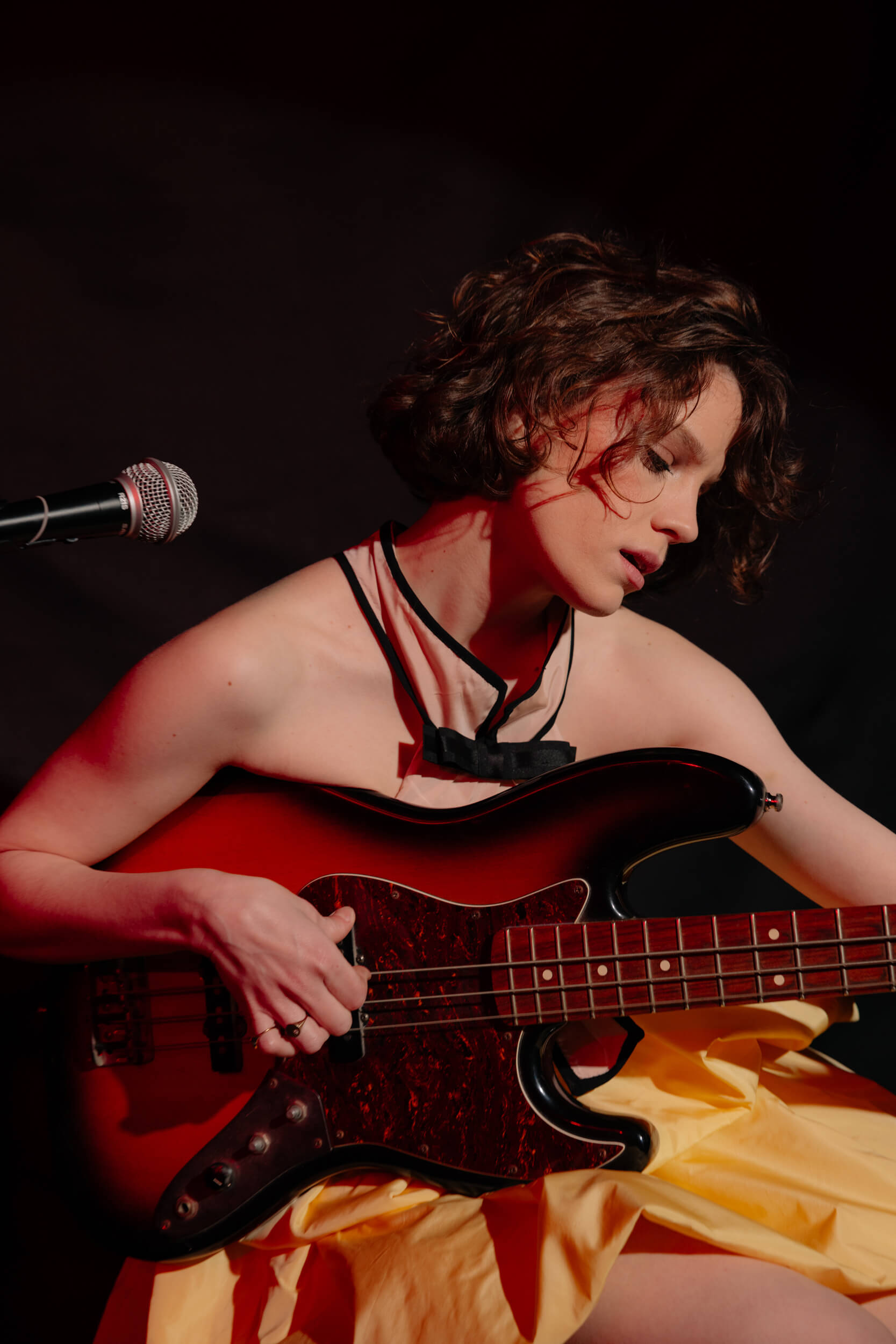
In “Gloria,” you play the role of Lucia, the first violinist of the Sant’Ignazio Institute orchestra. What were the challenges in preparing this character and how much of yourself did you put into her?
Certainly, the most difficult part was studying and playing the violin: being on set and having to play and act, having to think about these two things simultaneously. Clearly, the musical performances in the film were not our doing (thankfully), but not playing at all would have been considered a personal failure, even though it was the thing that scared me the most and that actually was complicated to do on set, even from the point of view of direction and photography. It was also complicated for Margherita to understand how to frame us, who didn’t know how to play, in the middle of an orchestra.
Instead, as for the characteristics of Lucia that belong to me the most, I’ll just say that when I saw the other girls who had been chosen to play the other characters and how much they resembled their respective characters, I said to myself, “Oh my, then I must be an unpleasant crazy person!” [laughs] Jokes aside, Lucia is a very determined person, and the beauty of my job is precisely seeing how much one can blend with their character in the end. In short, Lucia is now a part of me. However, I’m not as “feisty” as her, even though, perhaps deep down, I actually am.
I like to think that I have a bit of everything and a bit of nothing of Lucia.
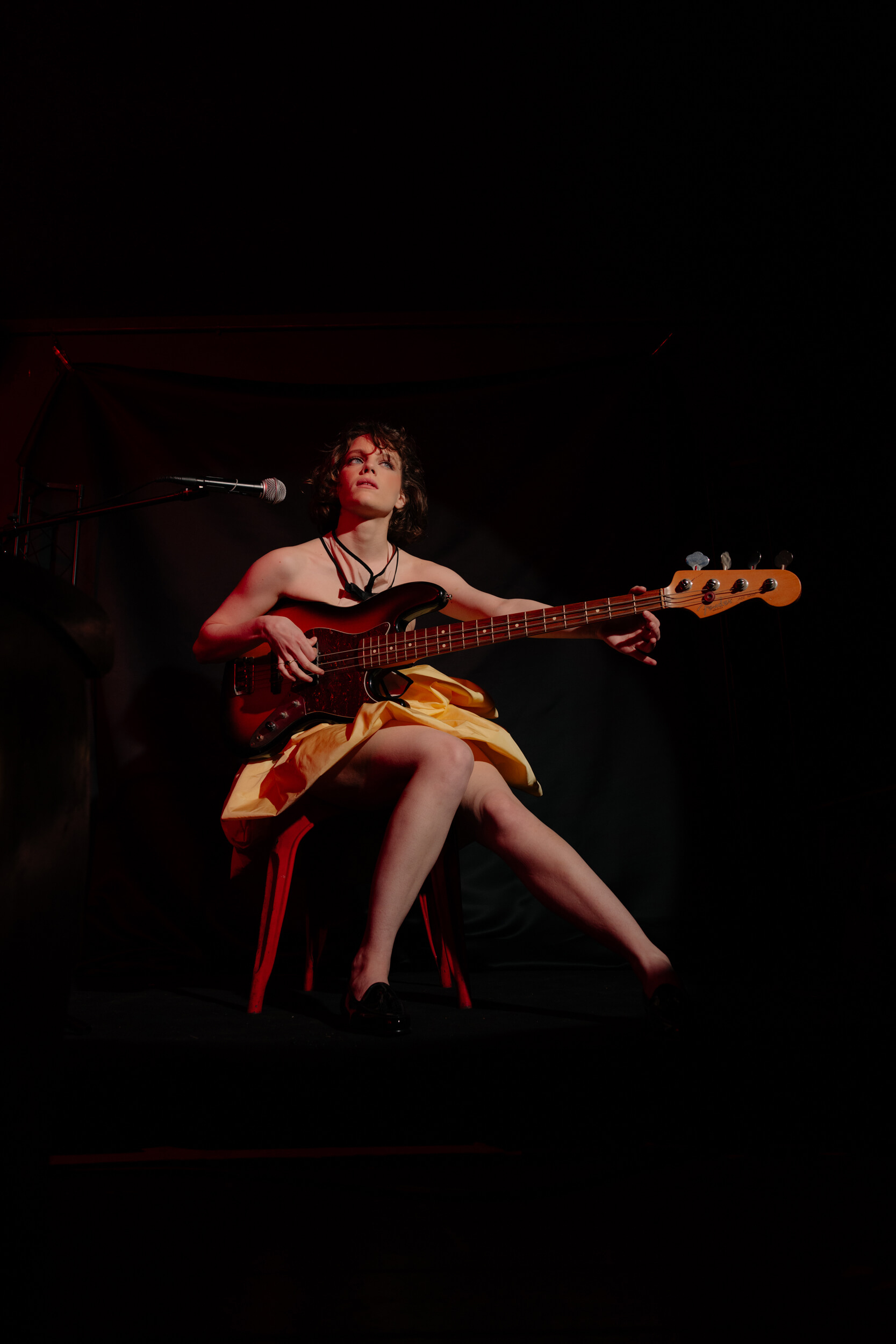
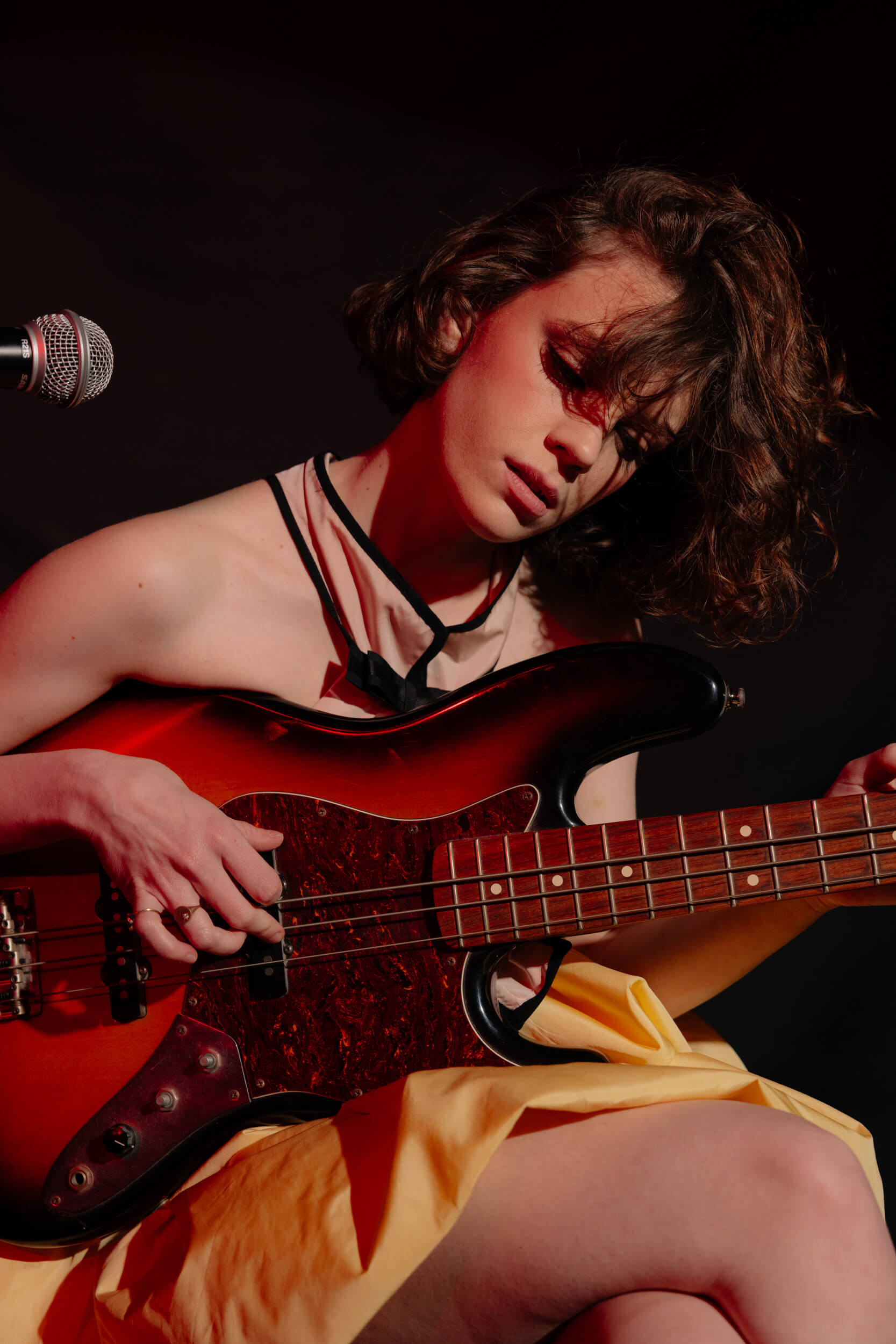
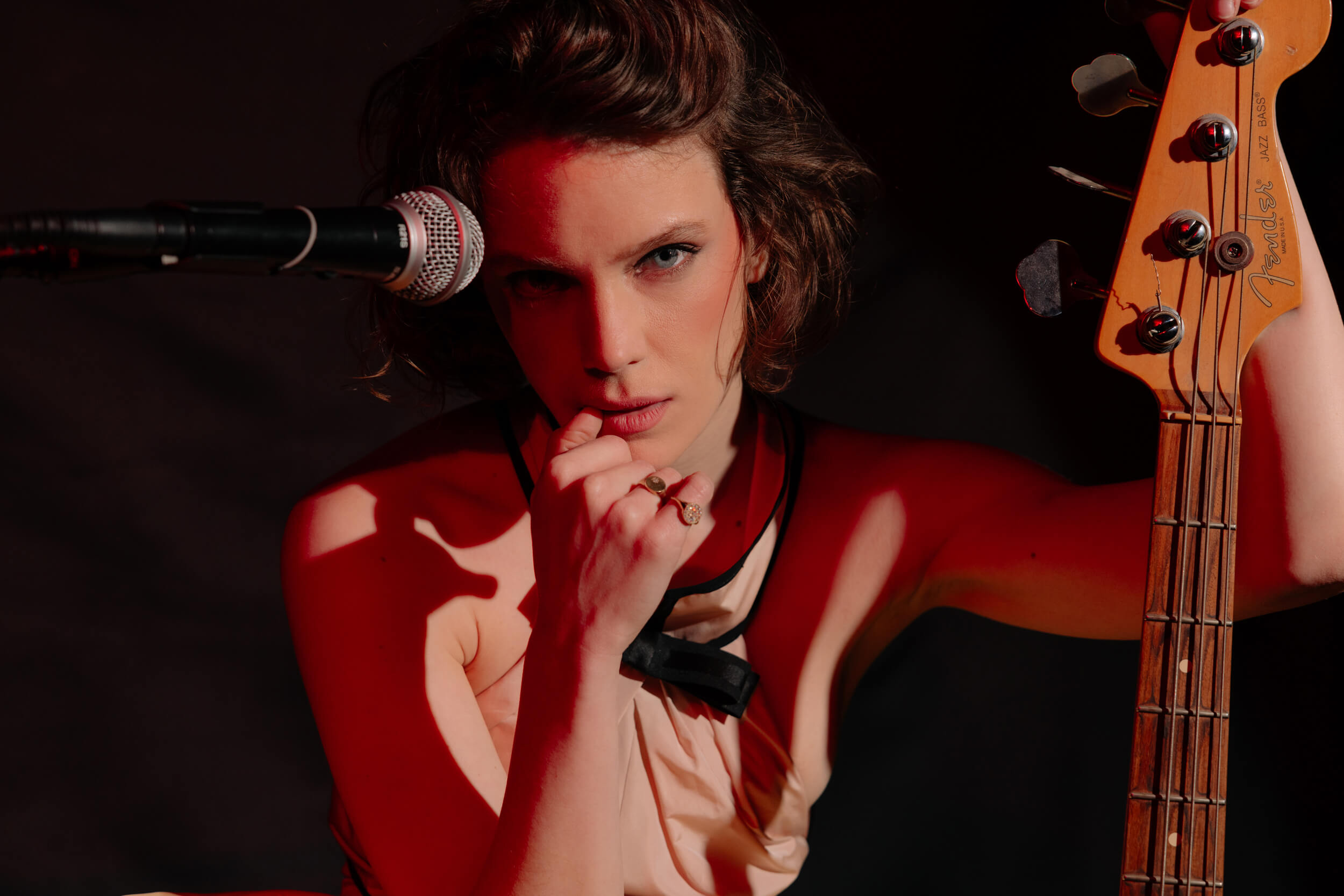
Lucia seems fascinated by Teresa’s project of composing pop music a century ahead of her time. What was your approach in representing this connection between tradition and innovation?
The best thing is that in this film, we discover the future, a bit like in those stories of aliens arriving on Earth! [laughs] We talk about something that doesn’t exist, that is yet to happen, and that, almost without realizing it, we make happen ourselves. Together, we create that music which then, in a very distant future, would be today’s music: we discover the piano, for example. It was wonderful trying to interpret that sense of wonder that we’ve somewhat lost today because we practically know everything; with the internet, you can go anywhere nowadays, for example, I’ve never been to China, but if I want, I can know what it’s like. That sense of wonder is hard to find because nowadays it’s hard to be amazed. When in the film we discover the piano, we look at it as if it were a monster, but the beauty is that at a certain point, it becomes natural for us to create music from scratch.
In short, this story is a beautiful mix of many things, of future and past, and thinking about it afterward, Lucia’s wonder in looking at the future corresponded to mine, Carlotta’s, in looking at the past and interpreting her! In short, a meeting in two opposite directions.
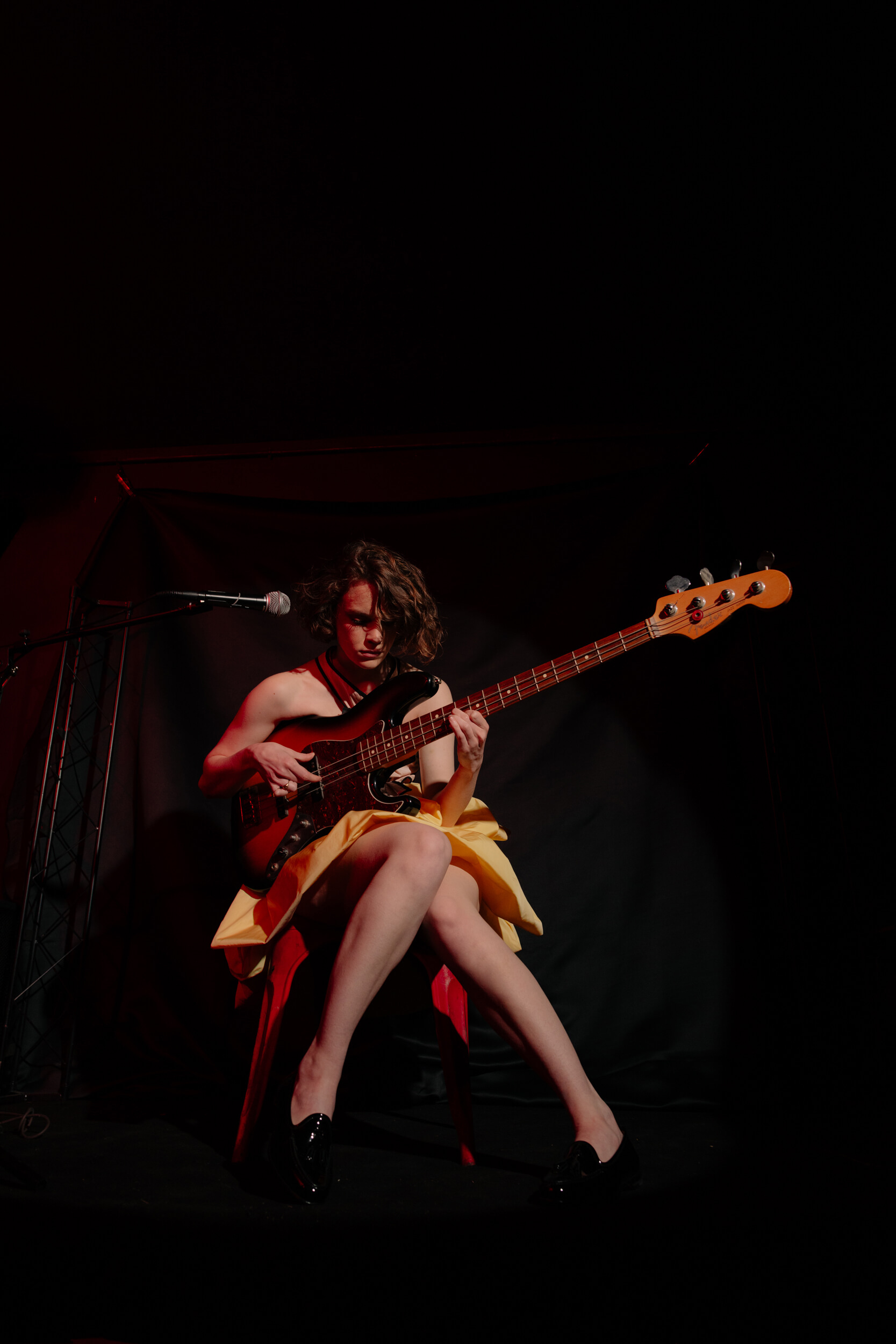
“It was wonderful trying to interpret that sense of wonder that we’ve somewhat lost today because we practically know everything”
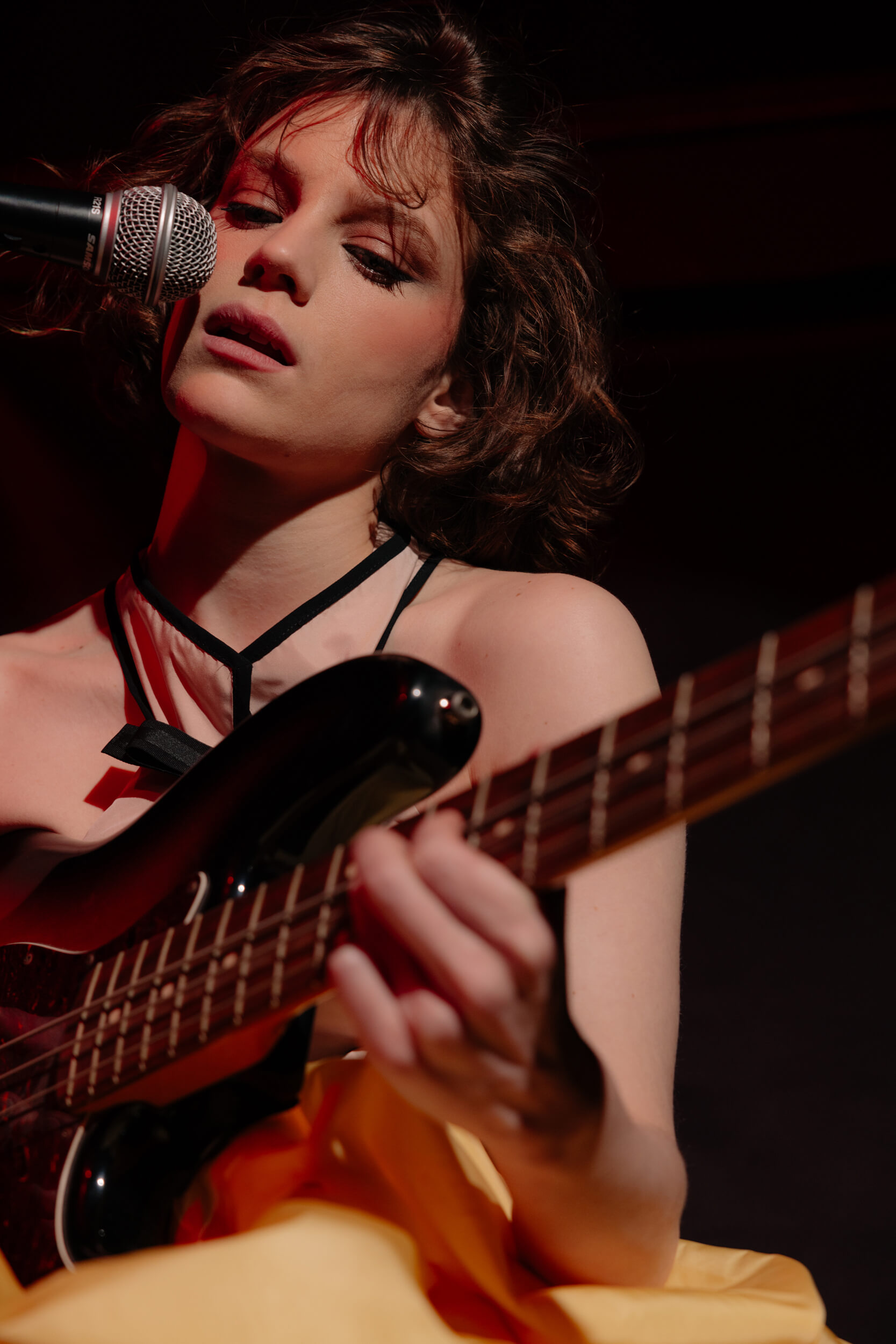
The film addresses important themes such as the importance of rebellion, creativity, and female solidarity. In your life, what has been your greatest act of rebellion so far?
I hope my greatest act of rebellion has yet to come!
Maybe moving to Rome was a rebellion, when I had it in my head that I had to study at the academy to become an actress. In truth, I didn’t rebel against anyone except, perhaps, against myself. I pushed beyond my limits to “conquer” my job and to get to do what I do. But in life, I hope to rebel in an even more striking way one day, to have the courage that the girls in the film have as they pursue their dreams.
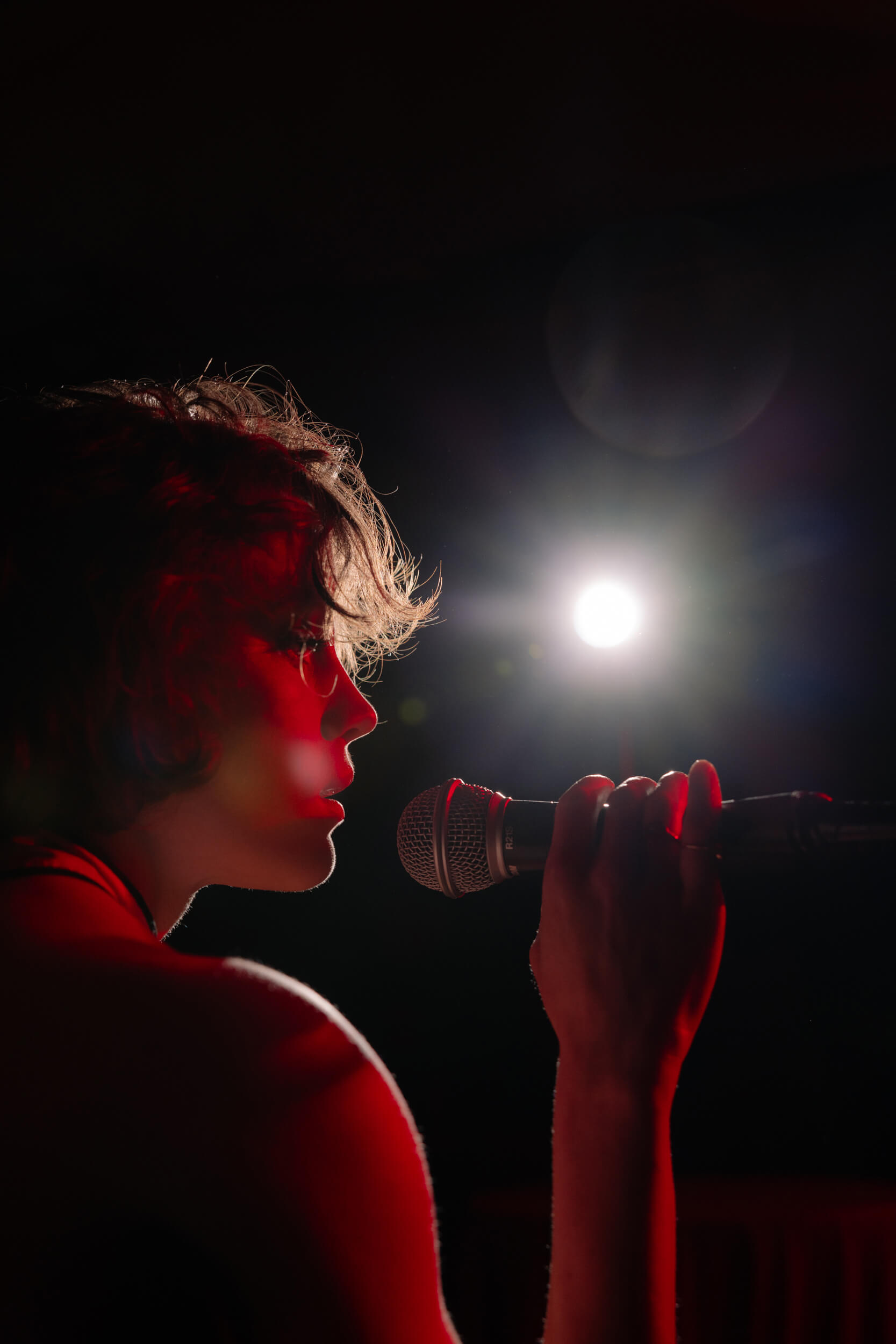
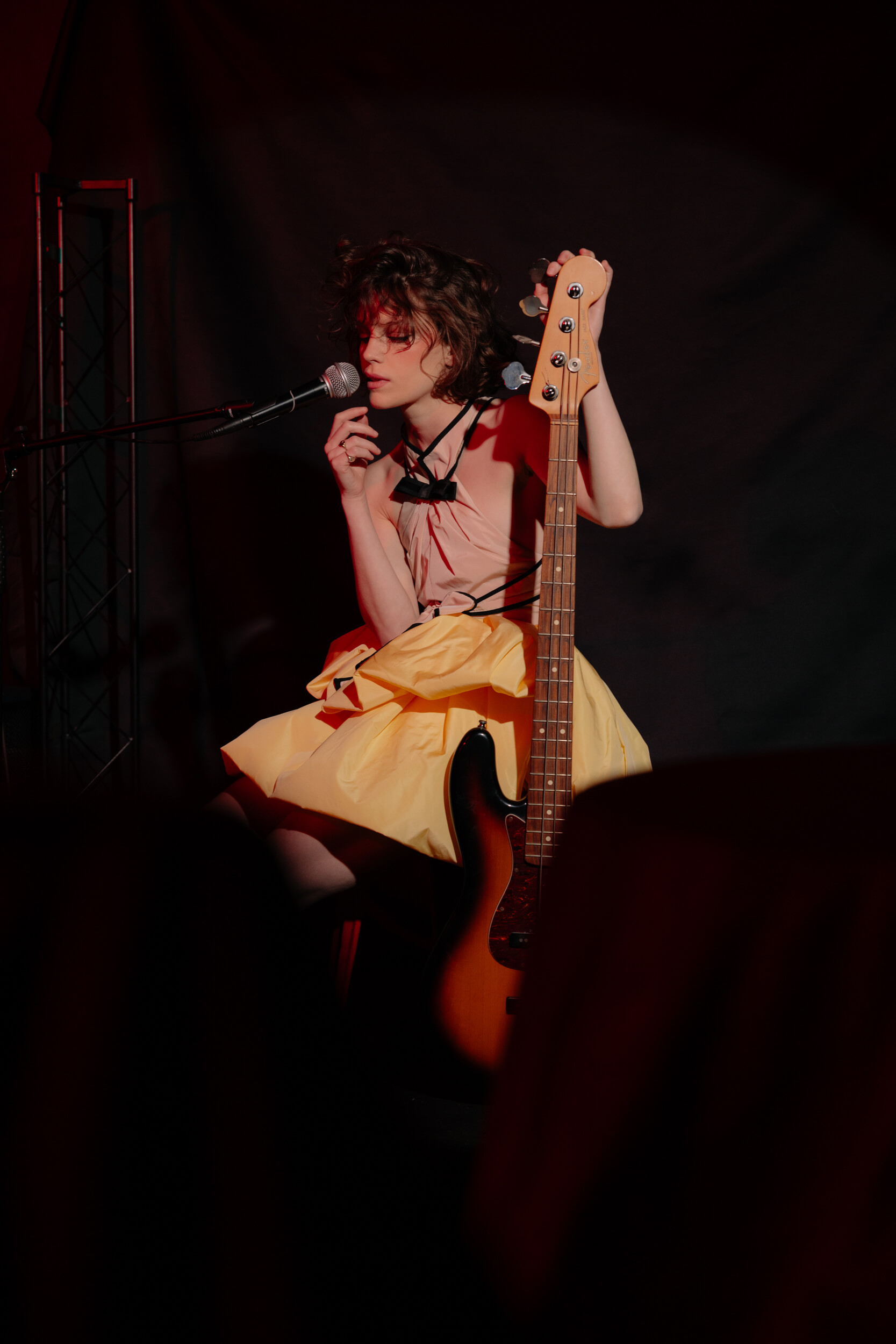
Lucia is drawn to the idea of marriage and motherhood but finds herself involved in a musical project that could revolutionize her destiny. How do you interpret the character’s inner conflict between traditional duties and desires for personal fulfillment, and what reflections did this theme evoke in you?
I faced these conflicts as if they were mine. For Lucia, it was right and natural to seek a man, considering that she was an orphan, therefore without a future, without a dowry. But she also had her dreams. We often talked about this conflict between love and music with Margherita and with Tatiana, who was our acting coach. Then, love for Lucia, in the end, is not just about her Luigi, whom you hardly see, but when she receives a letter from his parents saying, “Our son will never marry an orphan like you”, when she is discriminated against in that way, she realizes she had misunderstood love. In general, I hope the desire to start a family and the desire to pursue one’s dreams can coexist, and that these two things can be desired together, however difficult it may be.
However, it’s always nice when there are conflicts and then there’s character growth, so in the end, the interpretation was natural, like something I could have experienced myself. But who knows, maybe Lucia will never marry but still have children…
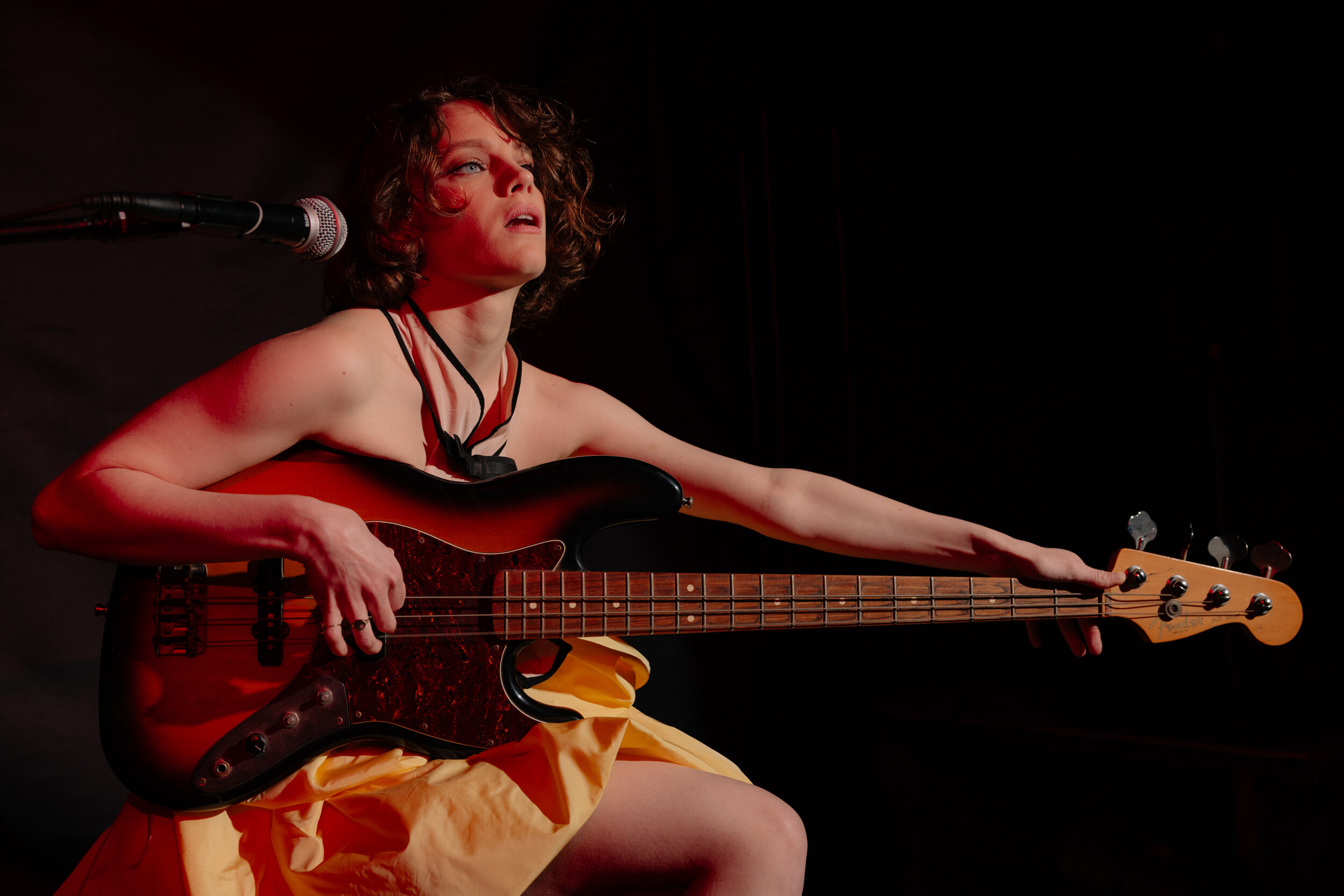
“In general, I hope the desire to start a family and the desire to pursue one’s dreams can coexist, and that these two things can be desired together, however difficult it may be.”
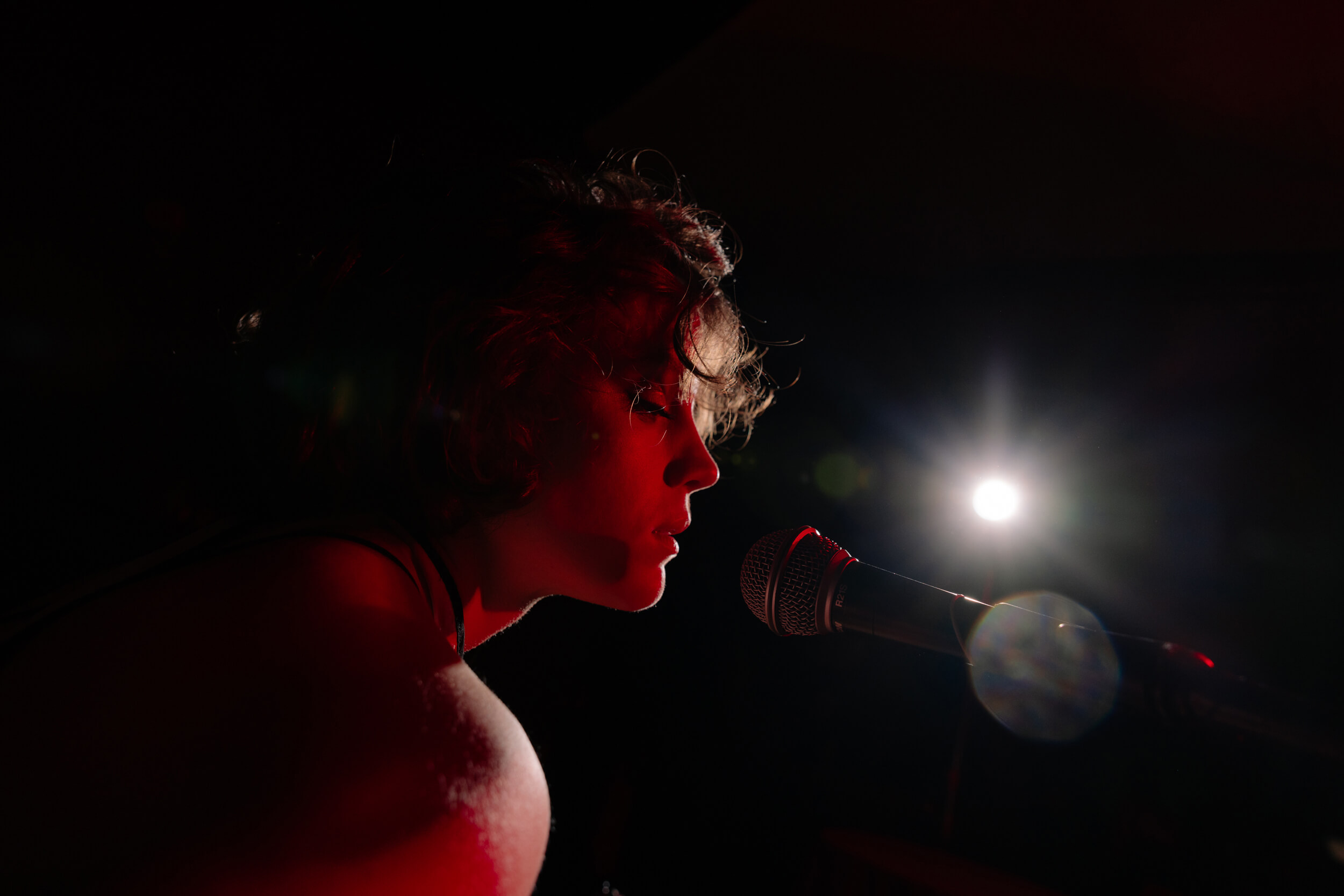
“Gloria” also explores the ability of music to unite different people and transform their lives. What is the power of music for you, both in cinematic storytelling and in real life? How do you think music can influence how we understand ourselves and the world around us?
Music, for me, is the most complete art of all, which leaves you completely free because you can only hear it and therefore leaves the imagination free to create the world that what you hear evokes. For example, I use music a lot on sets: it was one of the first lessons I was given, on my first set, to use music as a way to focus and awaken sensations and emotions that could be useful on stage. I use music a lot to return to myself, even if the lyrics have nothing to do with me and my life. In my opinion, when you manage to empathize with art in general, that’s where the great magic happens. Ultimately, the point is to feel connected, close, and that is also your greatest aspiration if you are an artist. For me, music has that magic within it. I listen to a lot of it, except when I’m feeling bad: then I shouldn’t listen to anything because it amplifies my discomfort [laughs].
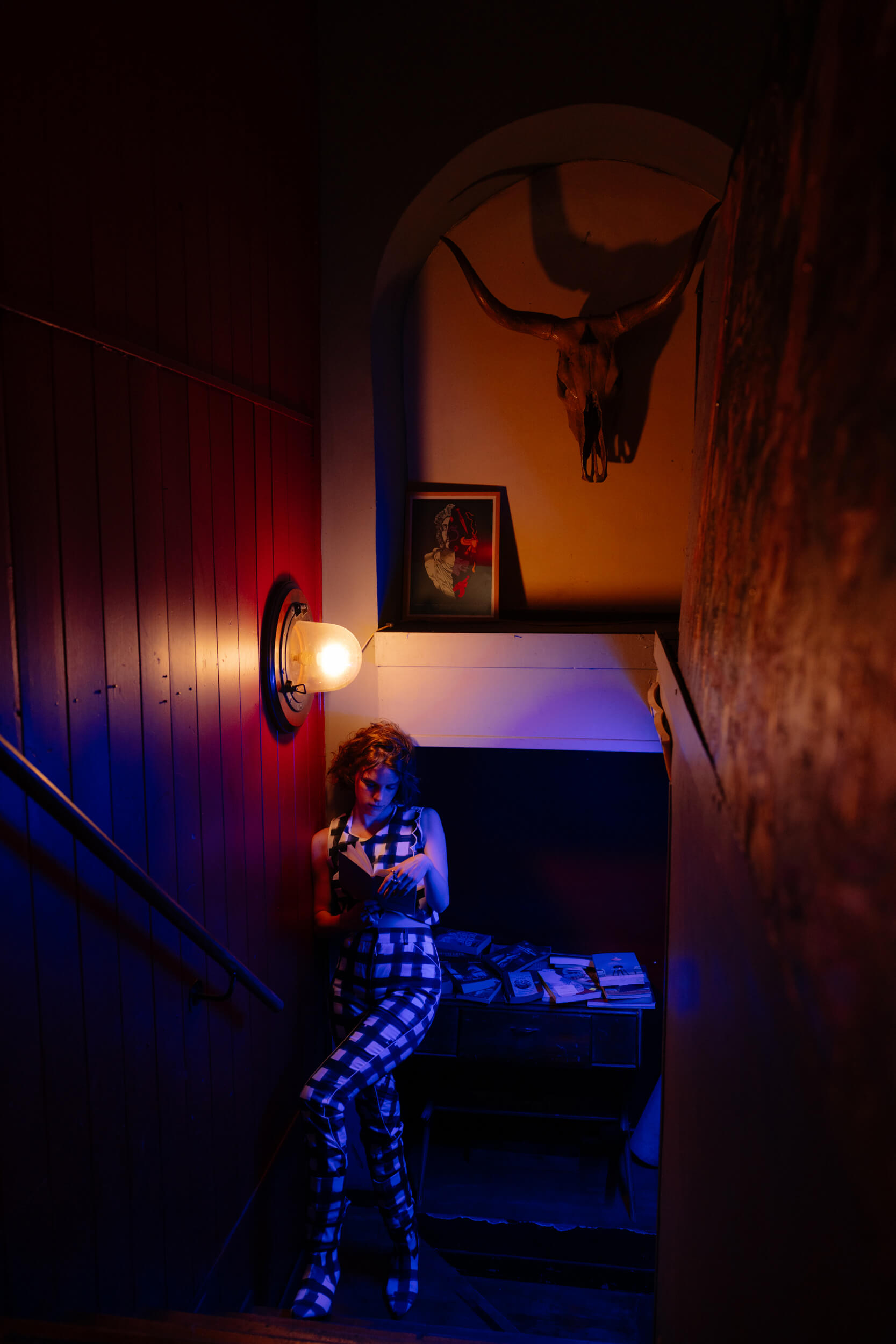
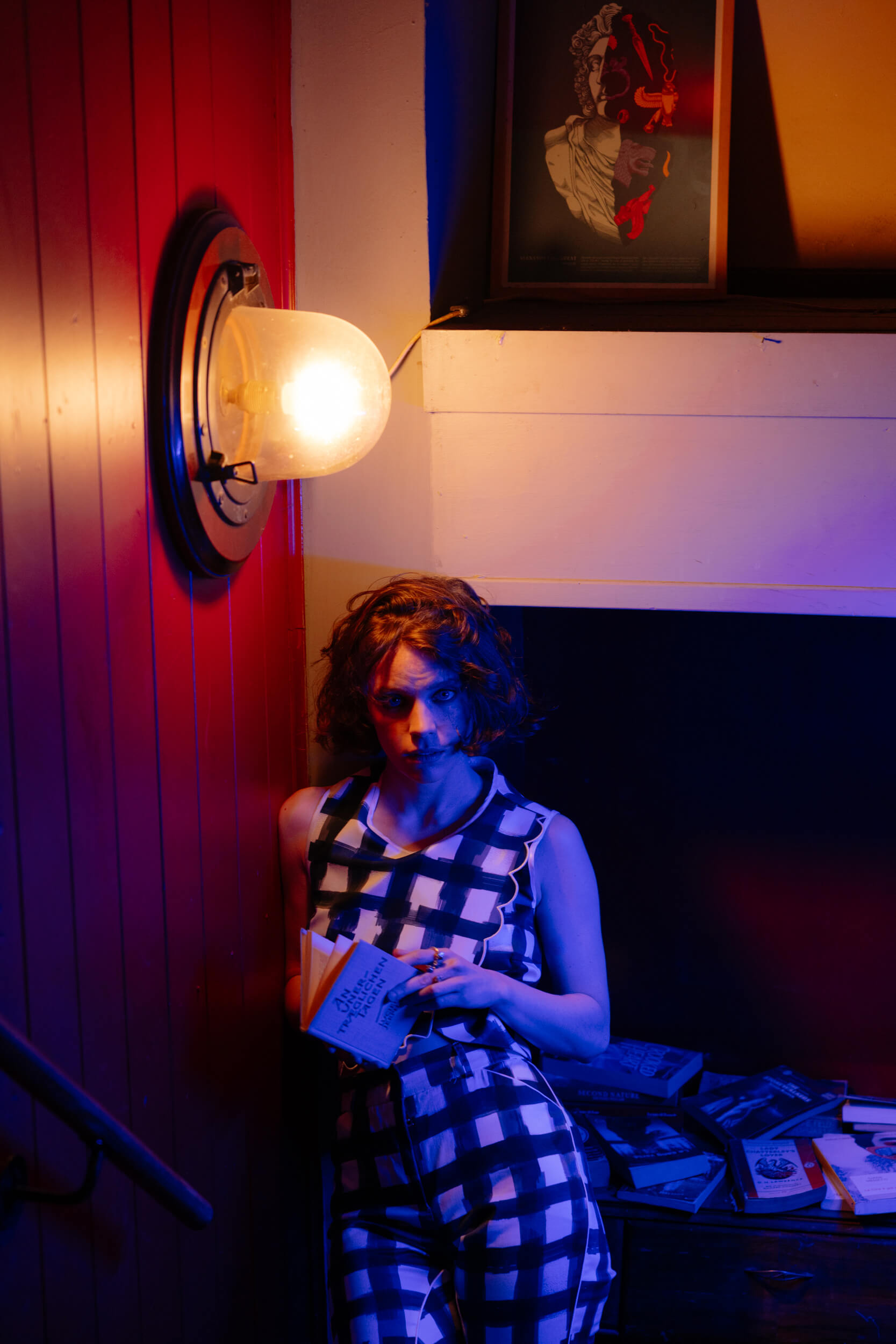
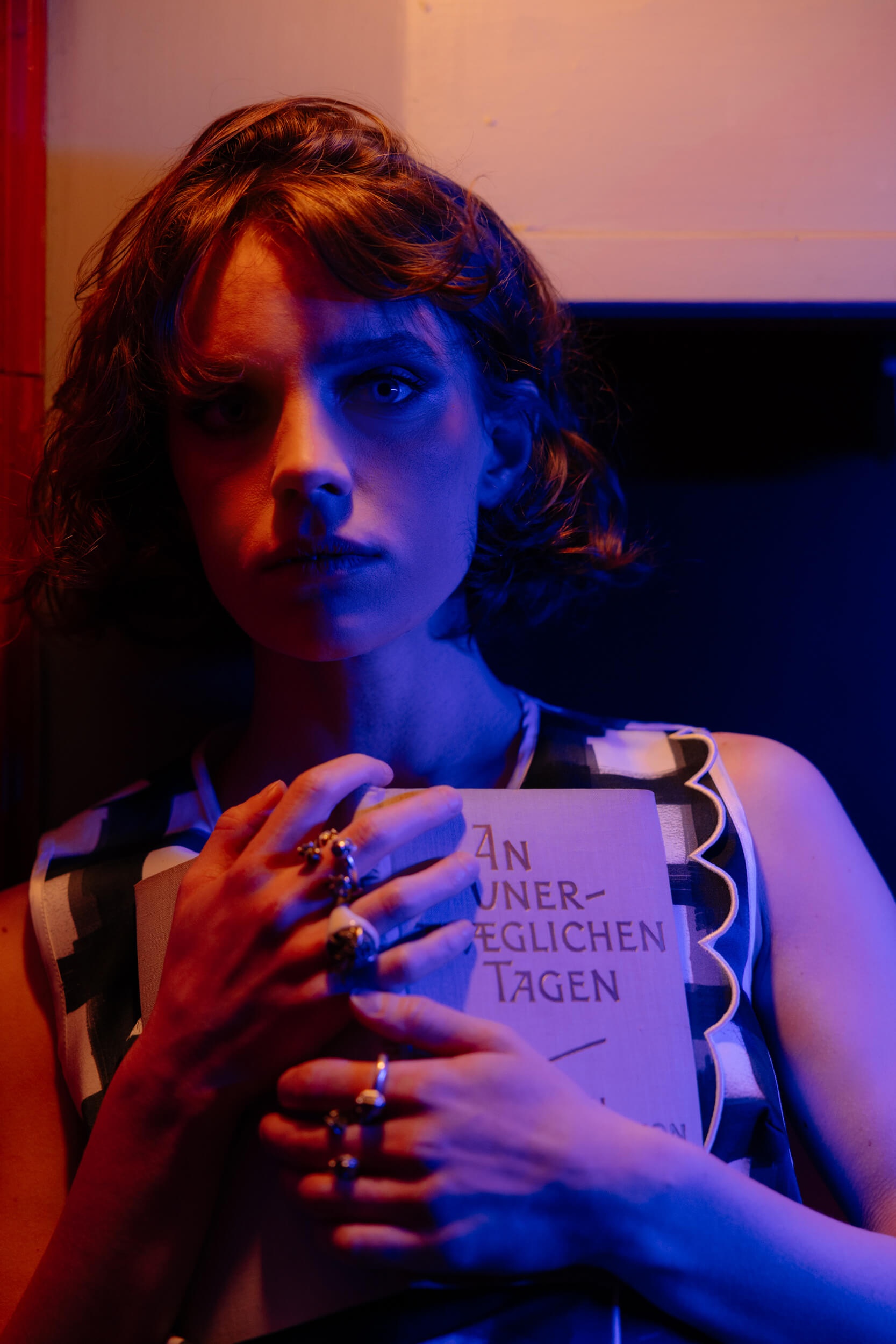
Speaking of music, what music do you like to listen to when you prepare for a role?
Lately, an artist who really moves me is Adrianne Lenker, the singer of Big Thief who also makes her own albums and has her own personal project. Her latest album has just been released, which I find poetic, because of the lyrics she writes and the music she makes. She is very country/folk and makes a type of music where she talks about what she knows, what moves her, and consequently, she reaches me easily, and what she feels is as if I feel it too. When there is sincerity, reality in art, then it hooks me.
However, the songs that shake me change over time, along with me.
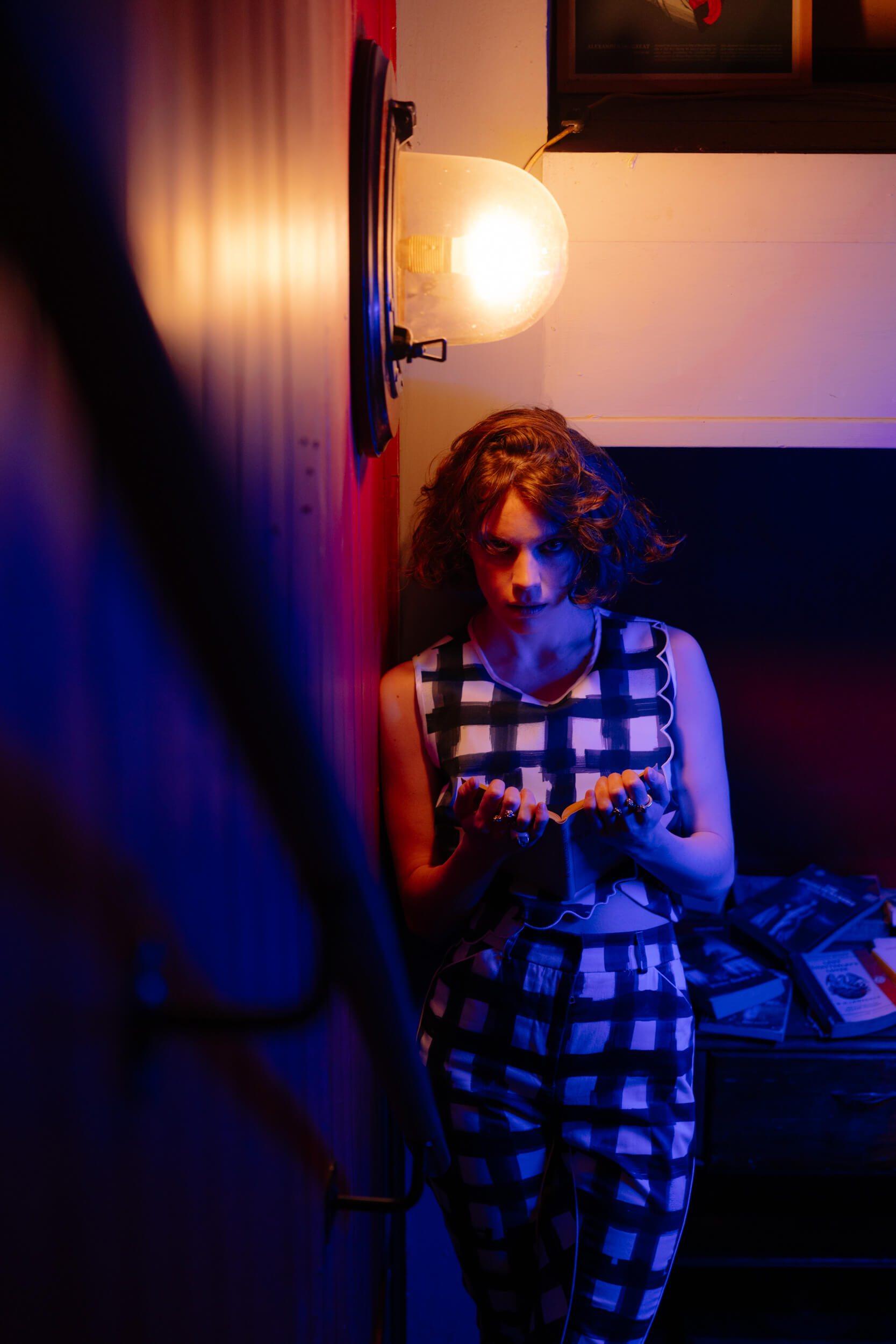
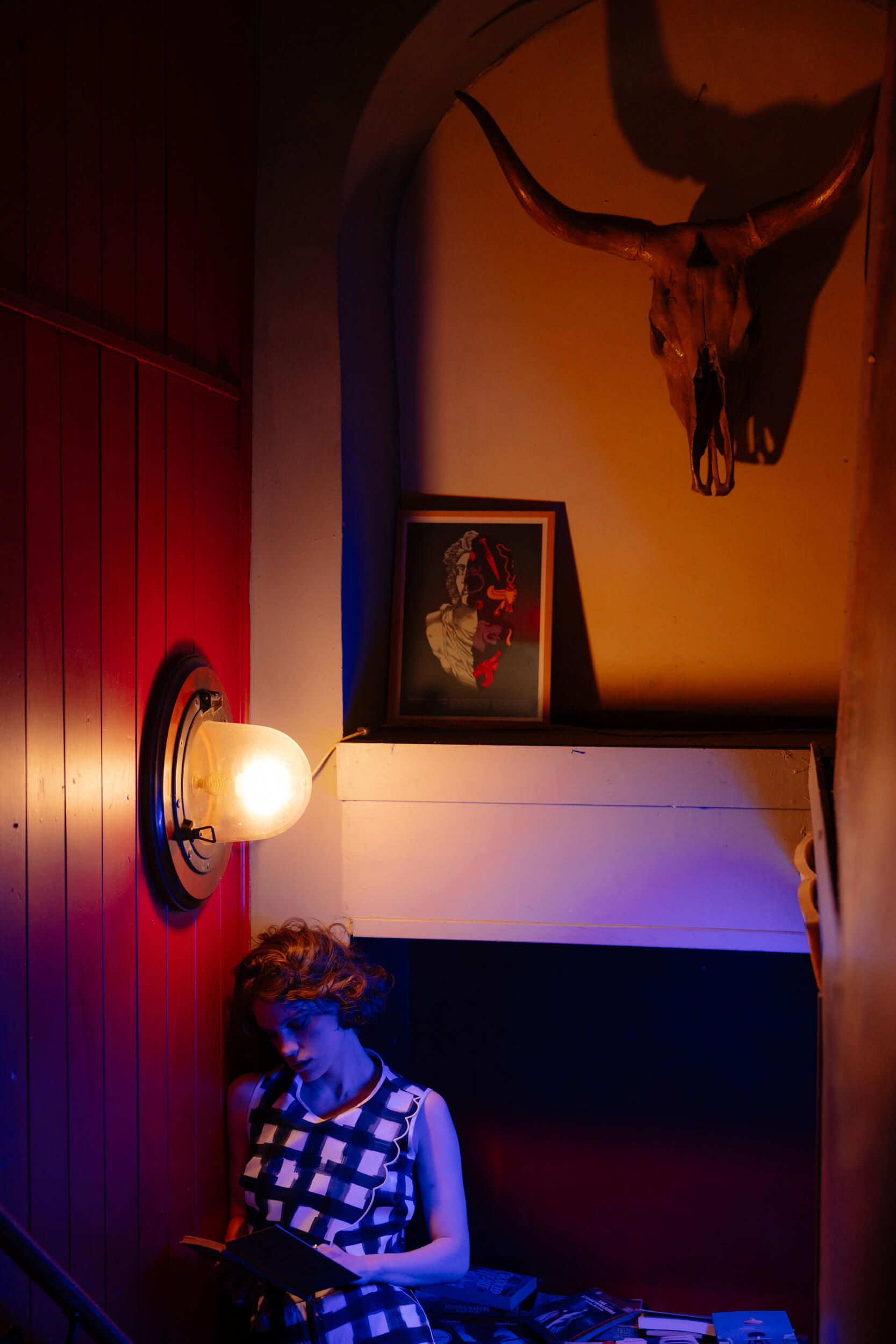
How influential was it, in this sense, to work with a director who is also a musician, like Margherita Vicario?
Margherita, even before being a director and a singer, had to be the one who would transmit to us on set her desire to tell this story, the intention and the message behind it. She illuminated us on this set: I remember very well the day we were in Gradisca, during the two weeks of rehearsal we did before shooting, when she explained to us, with the fervor and strength that Lucia, Marietta, Bettina, and all the characters have, why this story needed to be told, shouted, and in her own way. Margherita needed to say something. In fact, when I watch the film, I see her, I recognize her in the characters, in the way they move. She directed us towards what she had in mind to do, which was clear from day one, and we just had to put it into action.
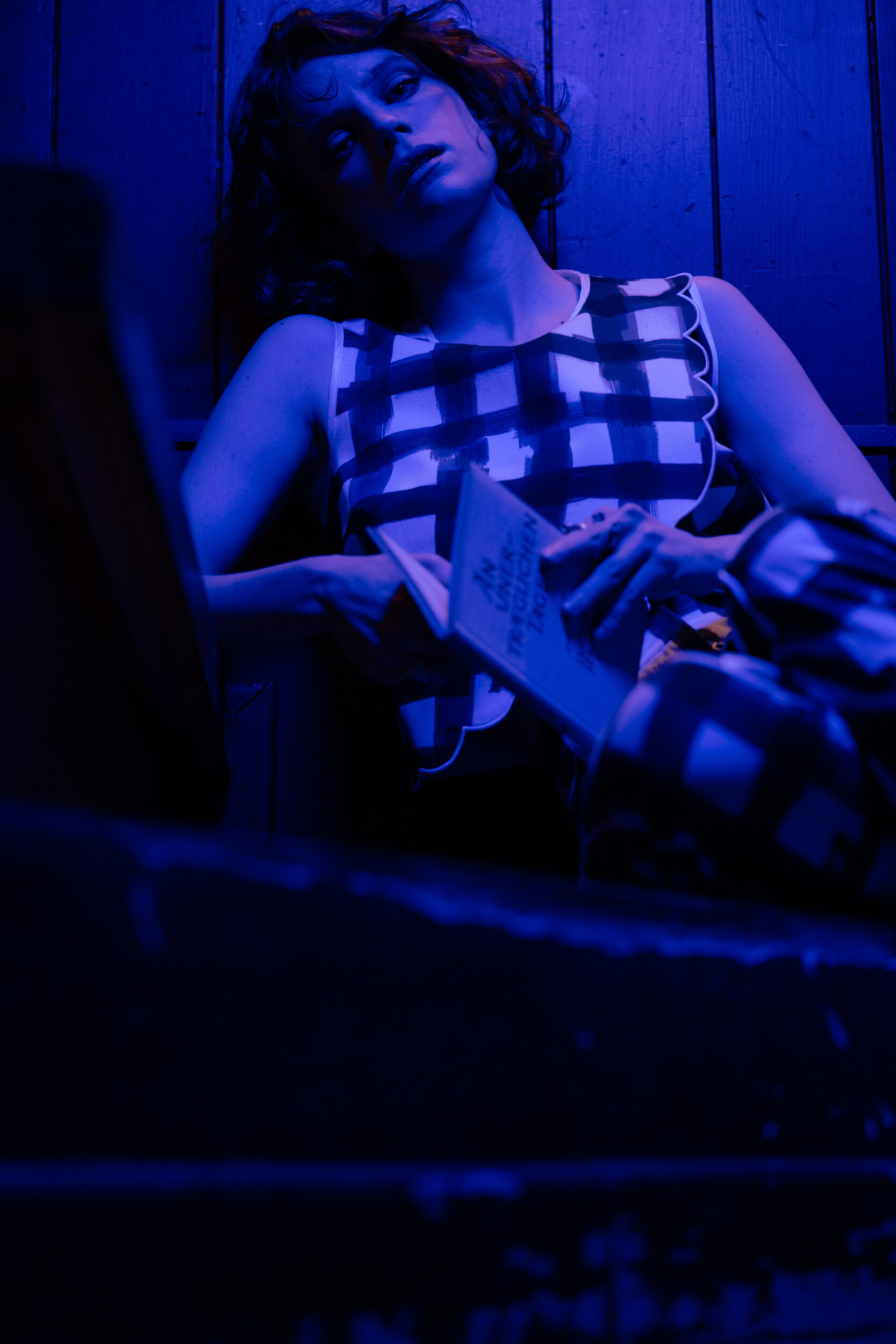
“Margherita needed to say something”
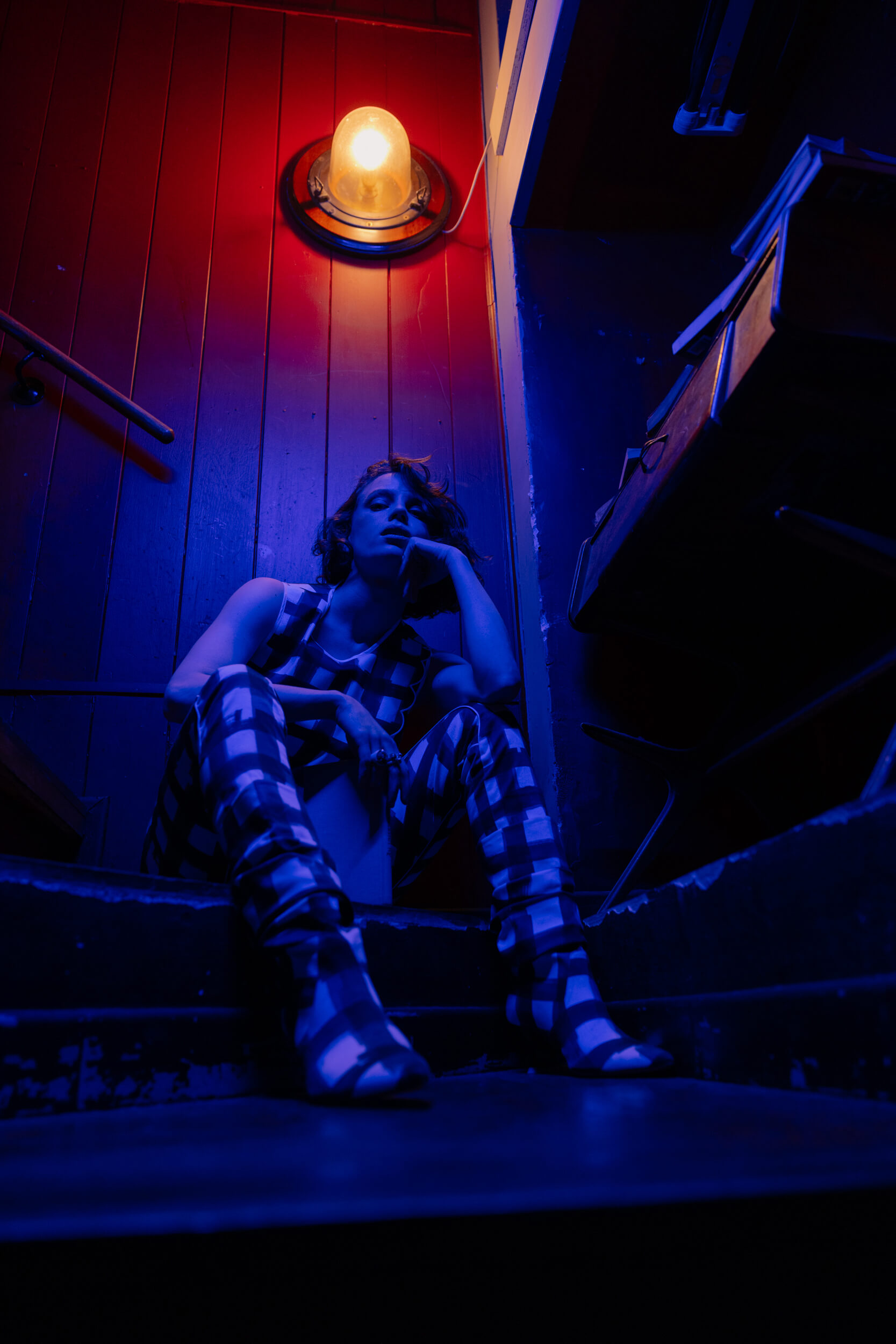
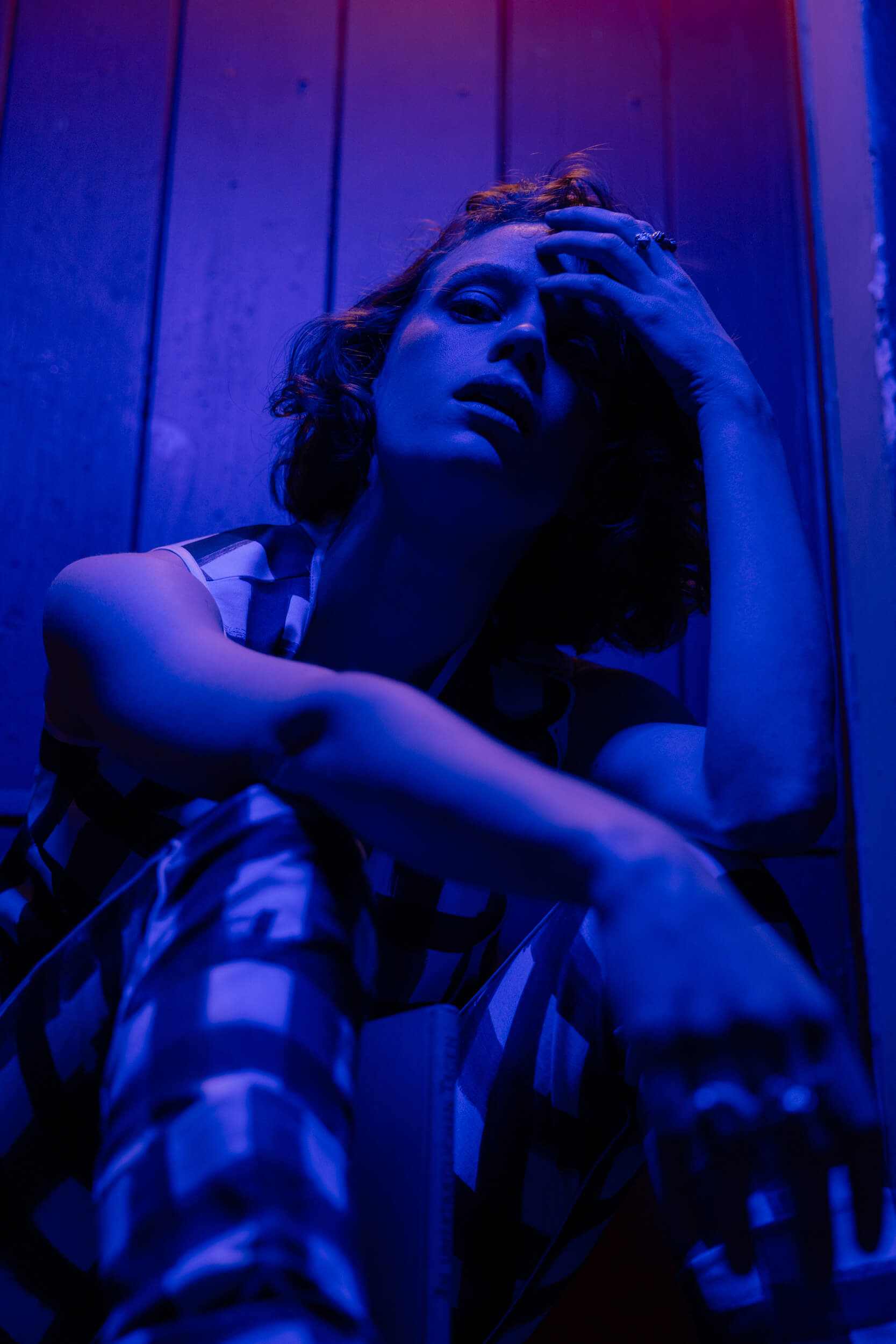
To date, what would you say has been the most rewarding aspect of your experience in the role of Lucia?
Certainly, my scene partners, there is no other possible answer. The girls became my friends, we supported each other in moments of despair, of happiness, we always knew we were there for each other, and it was a great stroke of luck. Thank goodness we got along right away because otherwise, it would have been a problem! [laughs] In the end, on sets, I’ve always made many friends, but this time finding all five of us together for a month inside that house was the greatest luck, an experience that I will always carry within me.
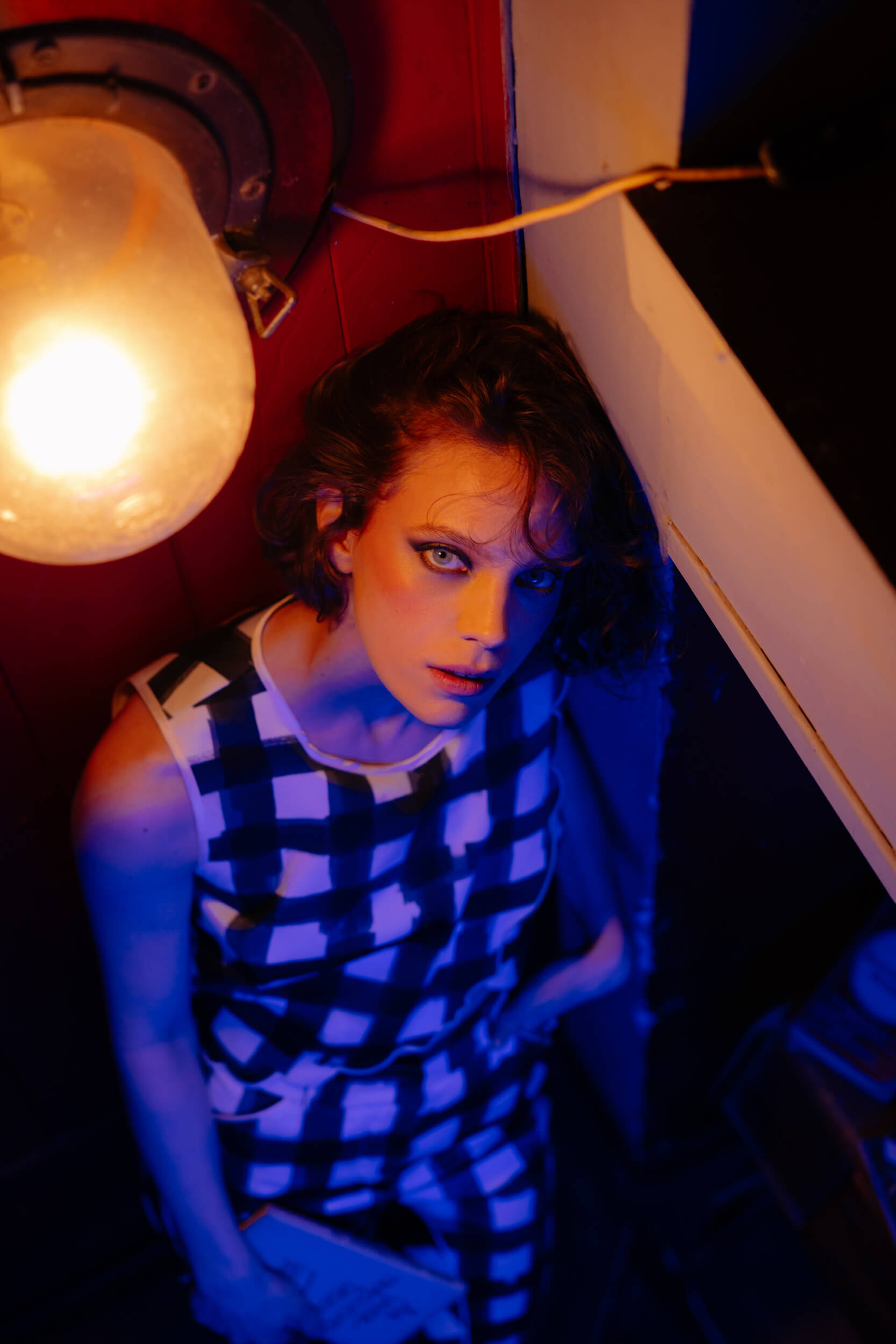
Do you tend to be more instinctive or rational when approaching your characters?
I think I’m instinctive. Of course, I’ve studied, so I know the technique, and in some ways, it’s part of me, and I still want to continue studying and growing my passion. But when I approach the scenes, I always try to put emotions first, whether they are negative or positive; these then take their course, so in the end, it’s instinct that prevails.
What was the last film or series you watched that stayed with you?
A film that stuck in my brain is “Breaking the Waves” by Lars von Trier. It’s the film of my life, I think. Or even “Snowtown” and “Nitram” by Justin Kurzel.
I like films that completely absorb me, taking me away from my life and my things.
So, what is the film genre that you most like to watch and the one you most like to interpret? Is there a difference between the two?
No, the films I love are the ones I would like to work on. Generally, mostly my favorite genre is dramatic cinema, auteur cinema, cinema that engages and involves.
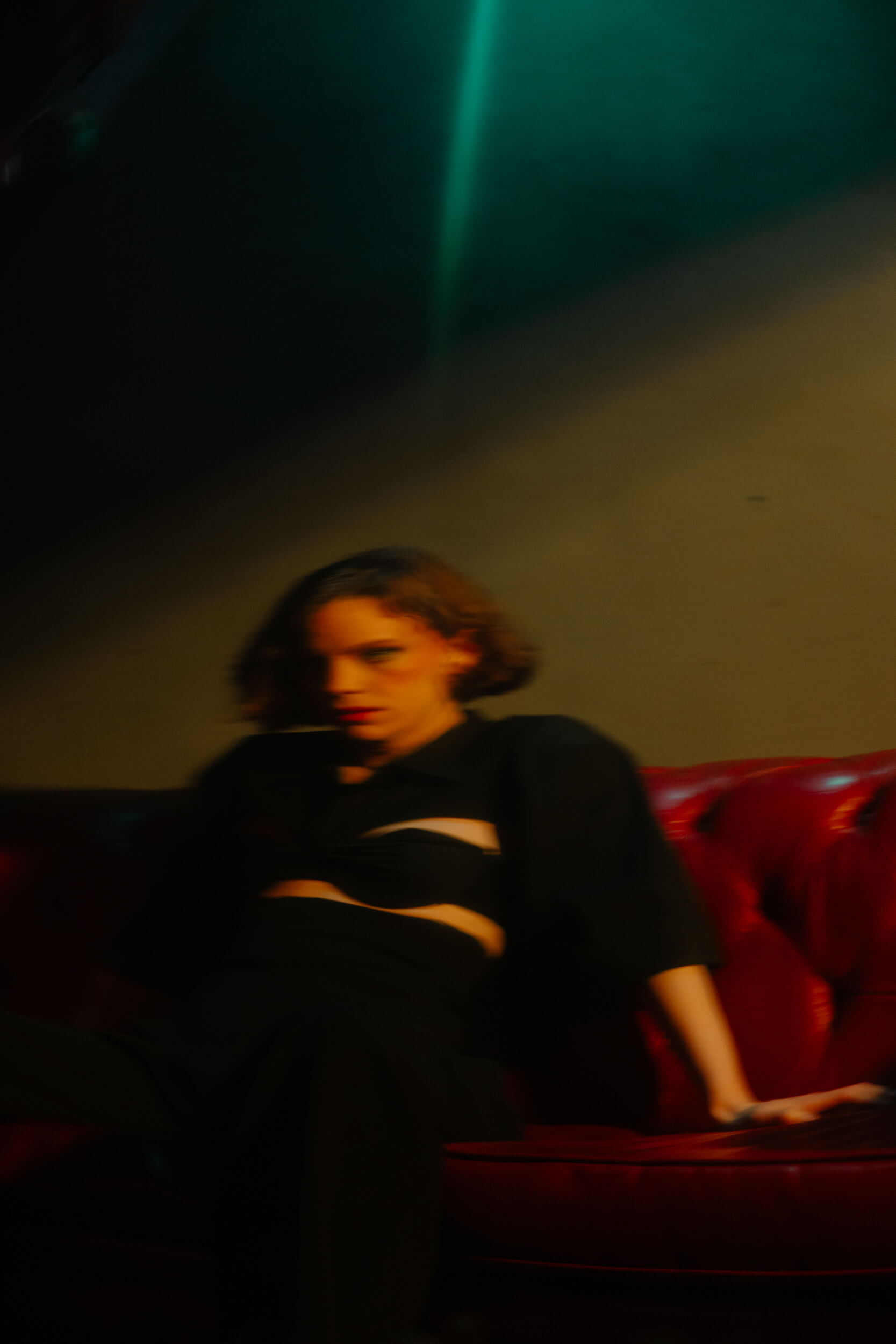
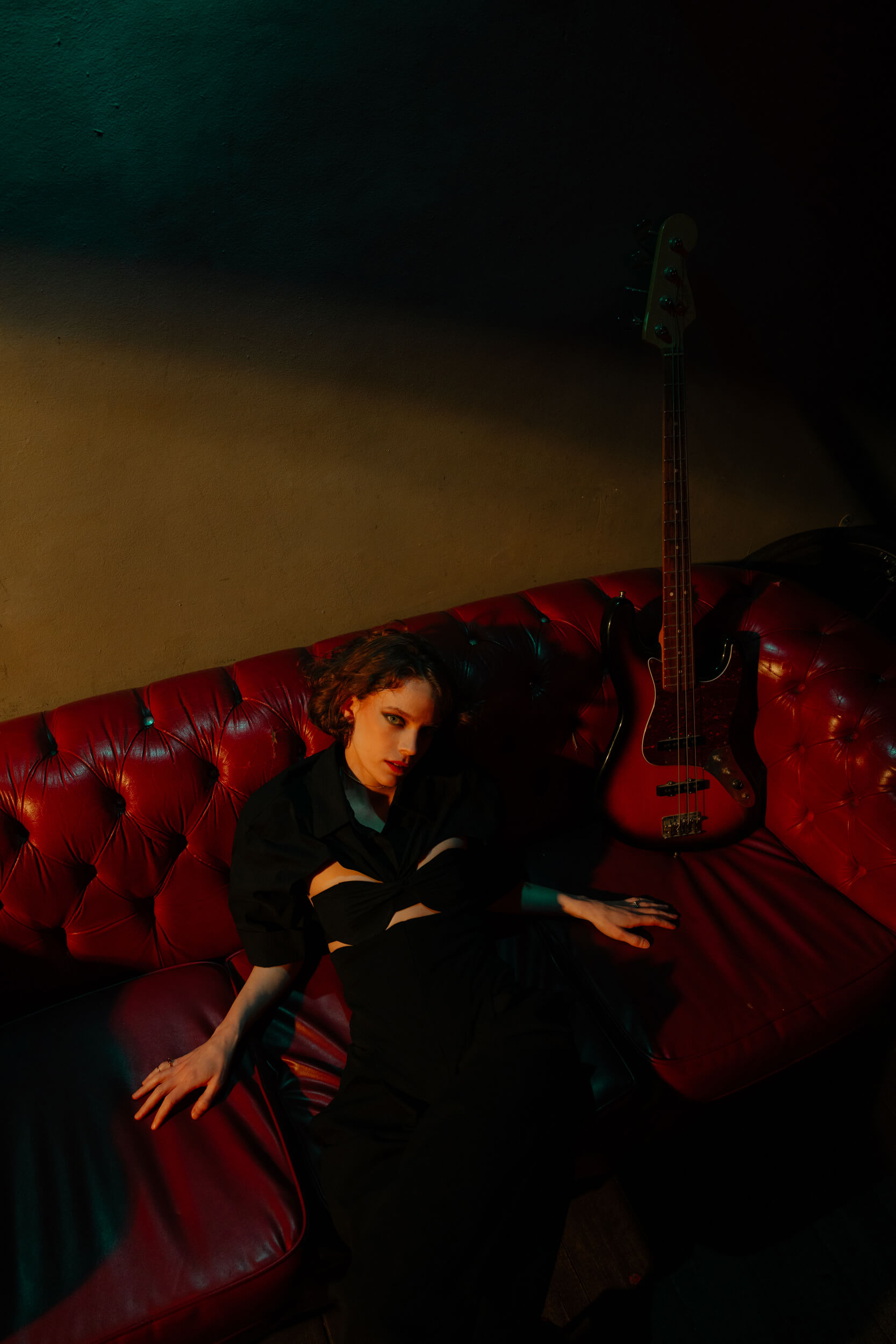
Your greatest act of courage?
In my own small way, to this day, it’s continuing to believe in this job and in the fact that I can do it. My job is a bit of a toxic love, sometimes it’s there and other times it’s not, and when it’s there, everything is wonderful, and life is suddenly beautiful, but when it’s not there, it seems like the end of the world. So, when it’s not there, you have to be brave and hold on, be strong and look at your path and keep walking.
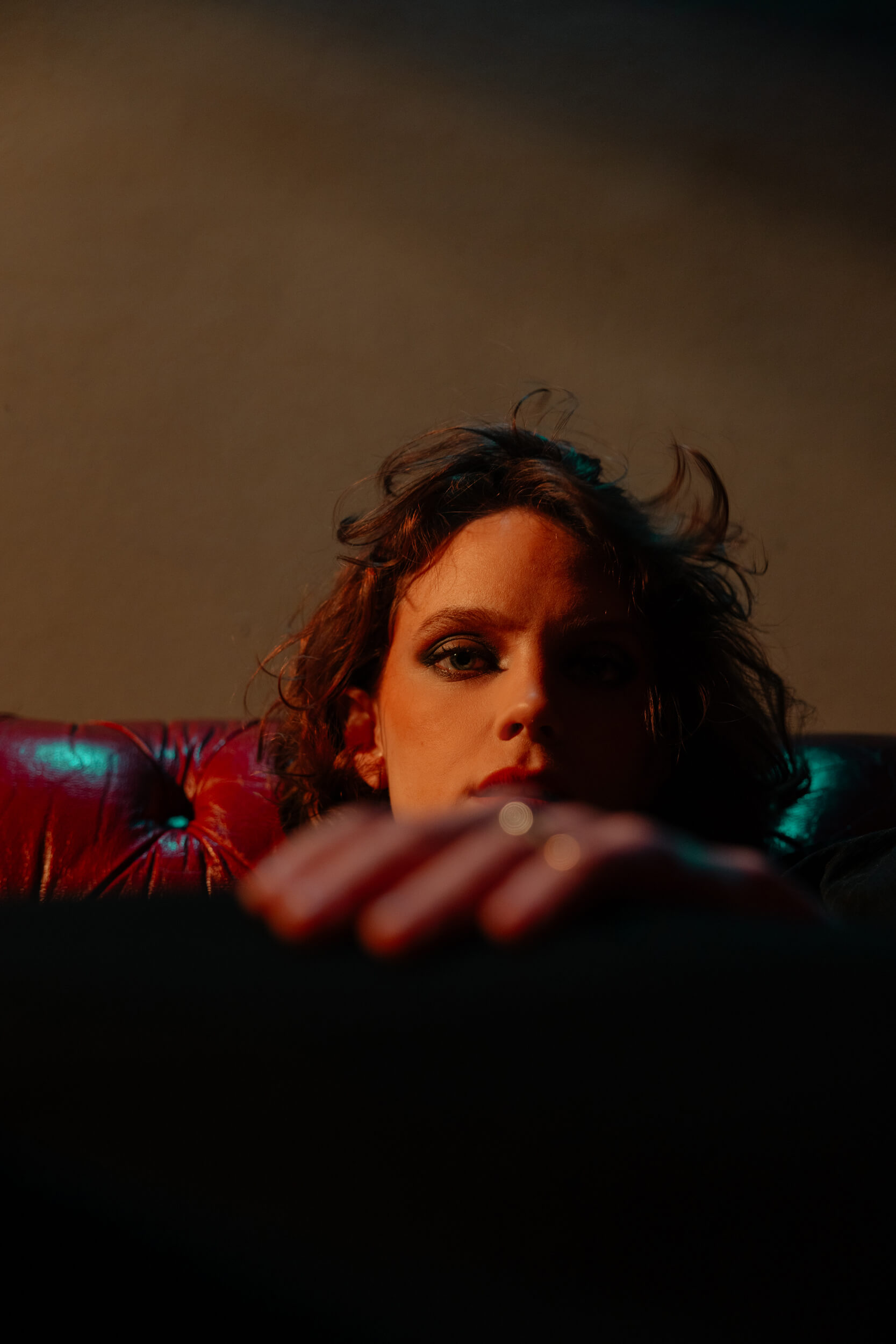
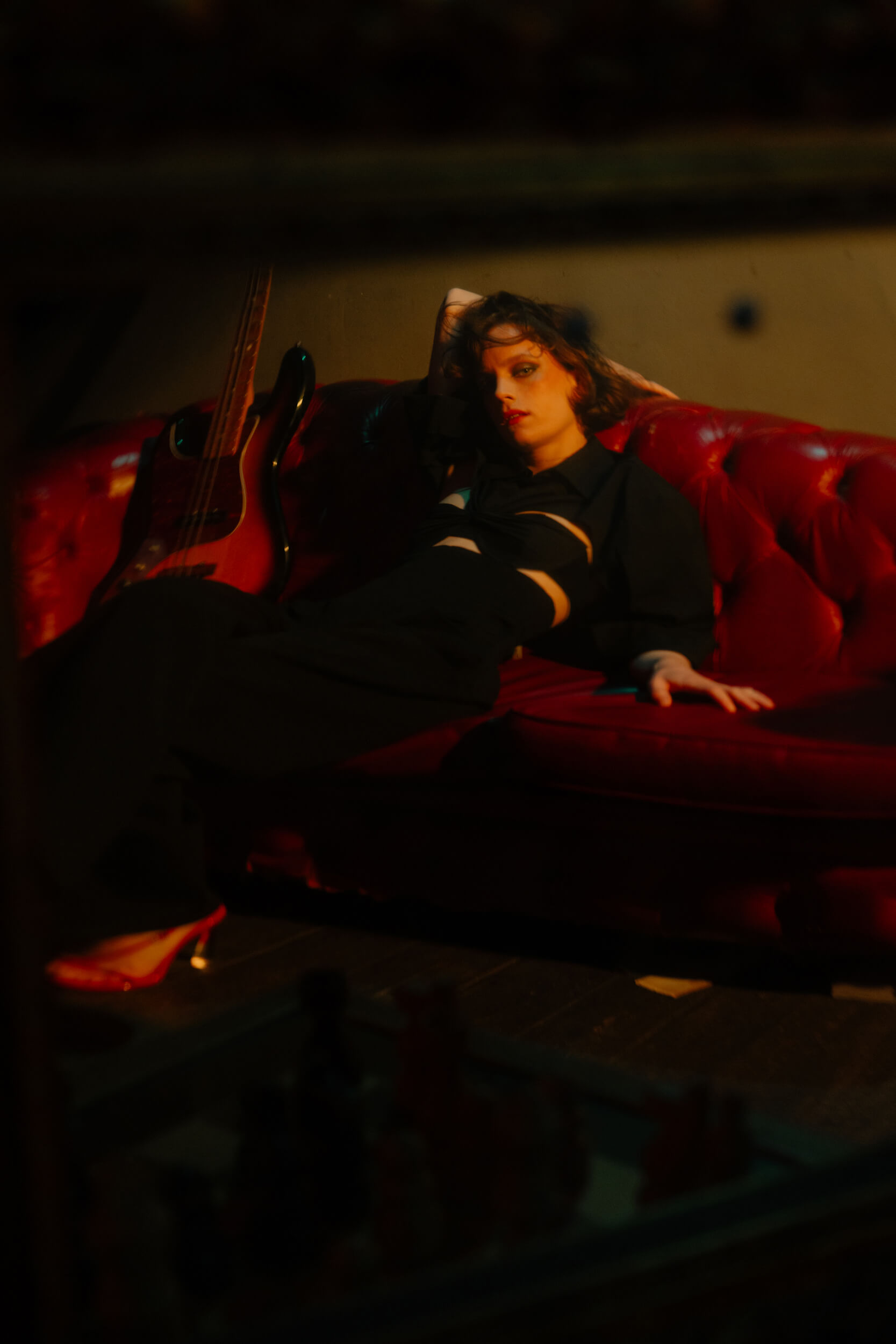
And the best “fuck you” of your life?
I hope I haven’t said it yet! But there is a certain satisfaction in saying it, for sure. I must have said it to someone, for example, to people who tried to change me, but not for my own good. In life, you change, you grow, you improve, but there are people who try to deceive you and change you, and not for your good or for the good of others, but rather to feel a very specific sense of power.
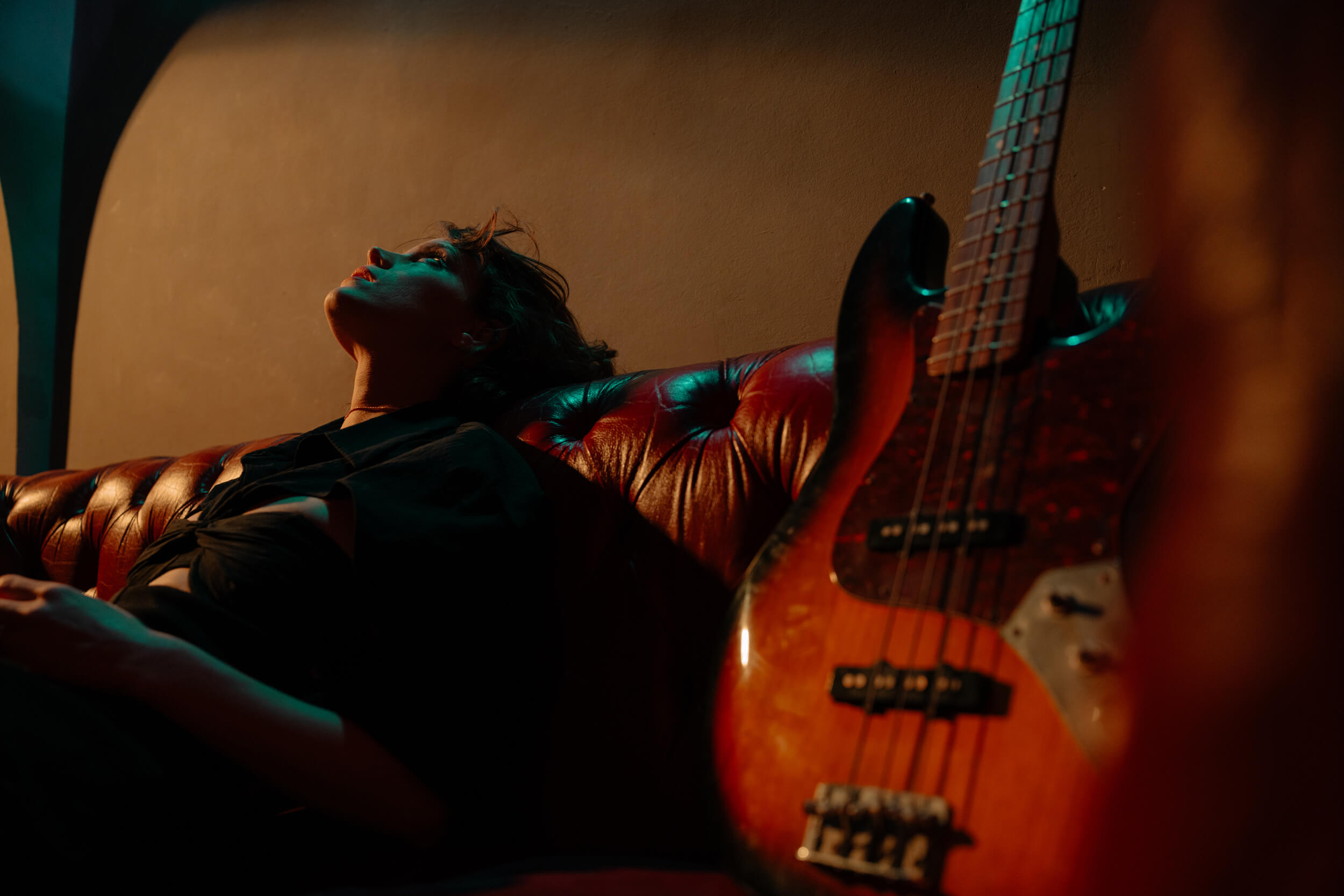
What gives you hope instead?
Love! A very much Lucia-like answer [laughs]
But yes, love for my passion, for my partner, for my friends, for my family. I believe that love moves all of us, we are driven to seek it for personal fulfillment, but not only. I do this job for myself because I like it, it amuses me, and it makes me think about human beings, but I also do it a bit for those who love me, to gift them with something.
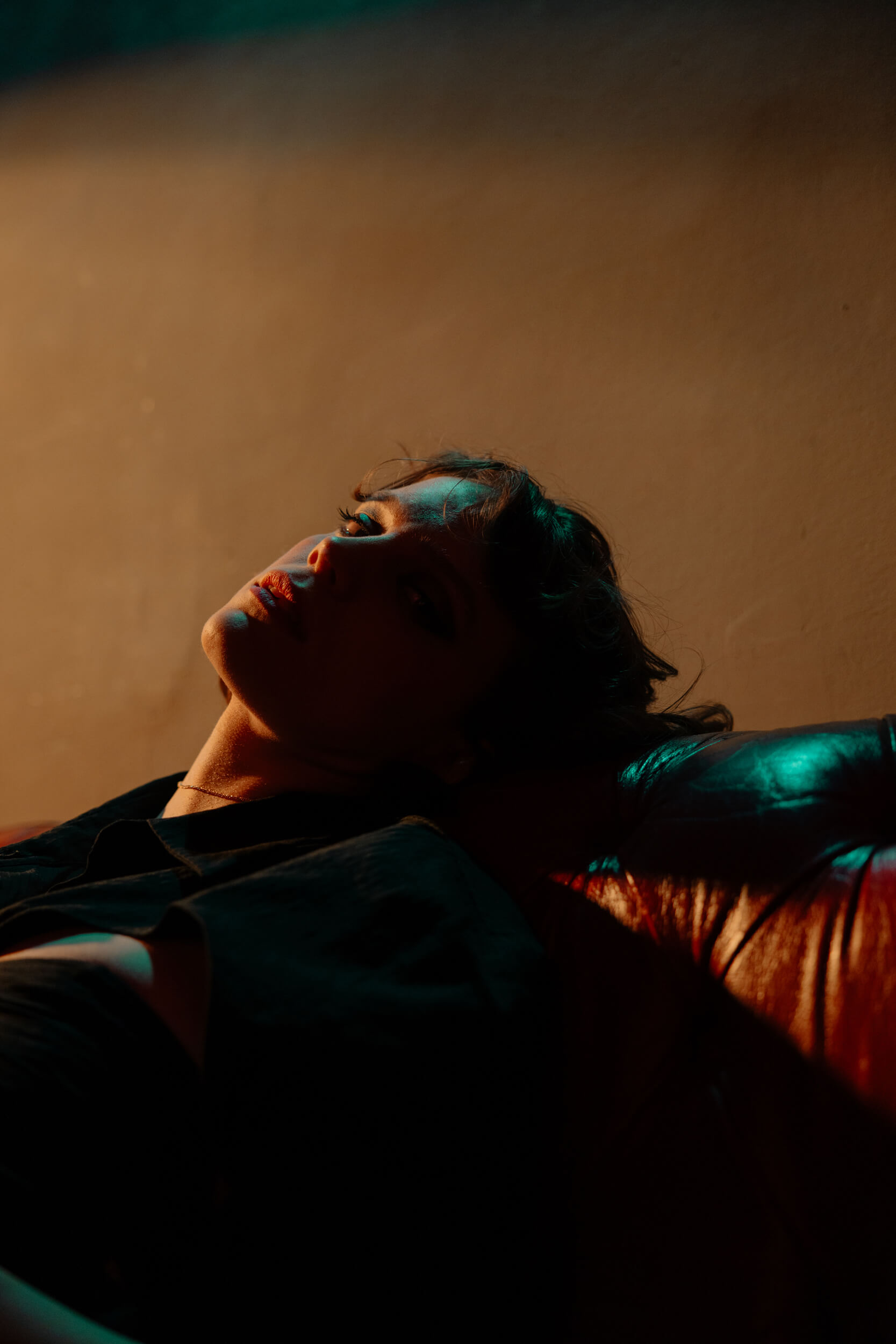
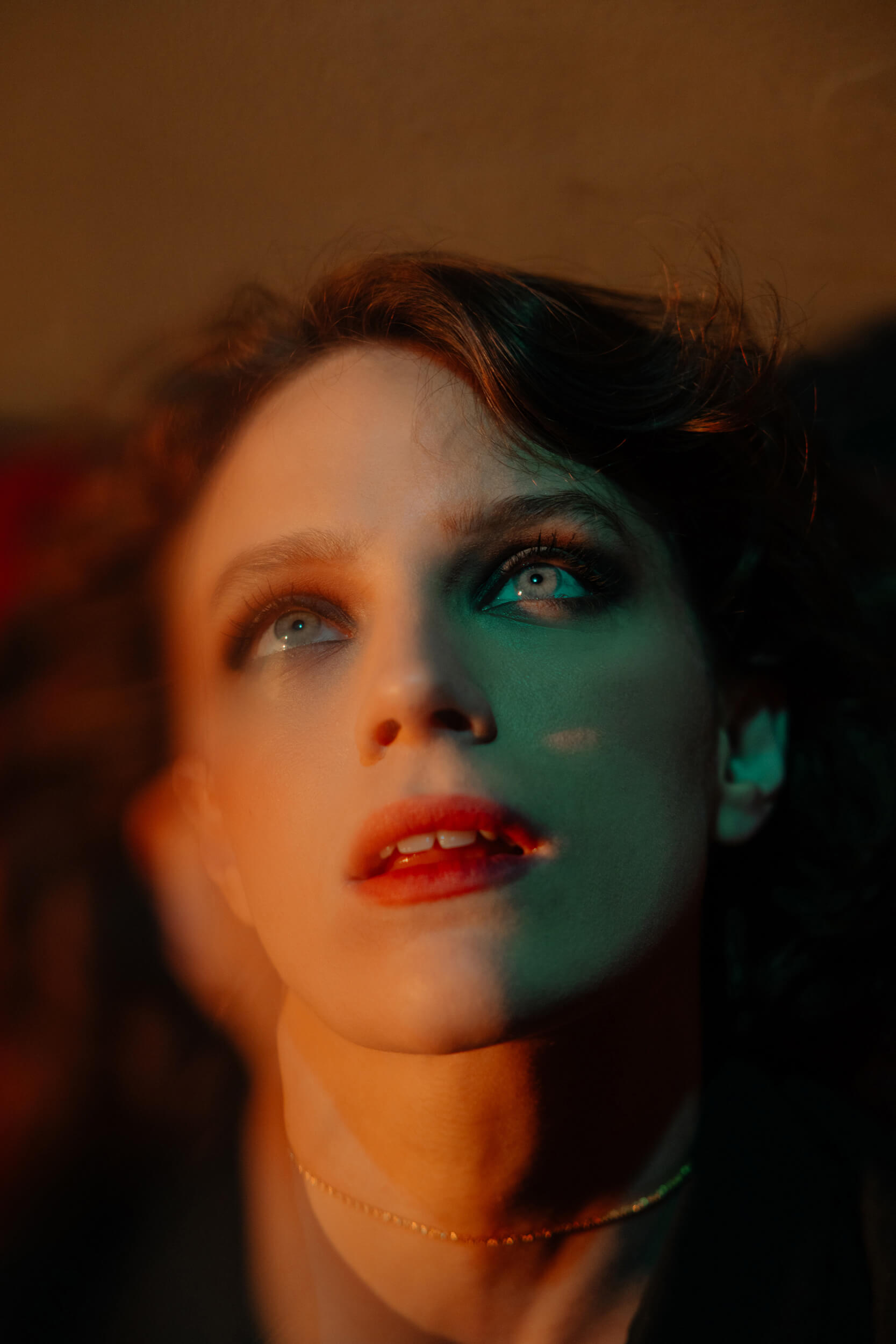
When do you feel safe? And when do you feel most confident?
I think I never feel confident. However, security is my search engine, the point where my fire is, the flame that must burn; from there, I take the strength I need to look for work, to have the courage to wait for it, and then to do it.
I feel safe, however, when I feel good about myself and the people I’m with, when I know there’s nothing to be afraid of in that moment.
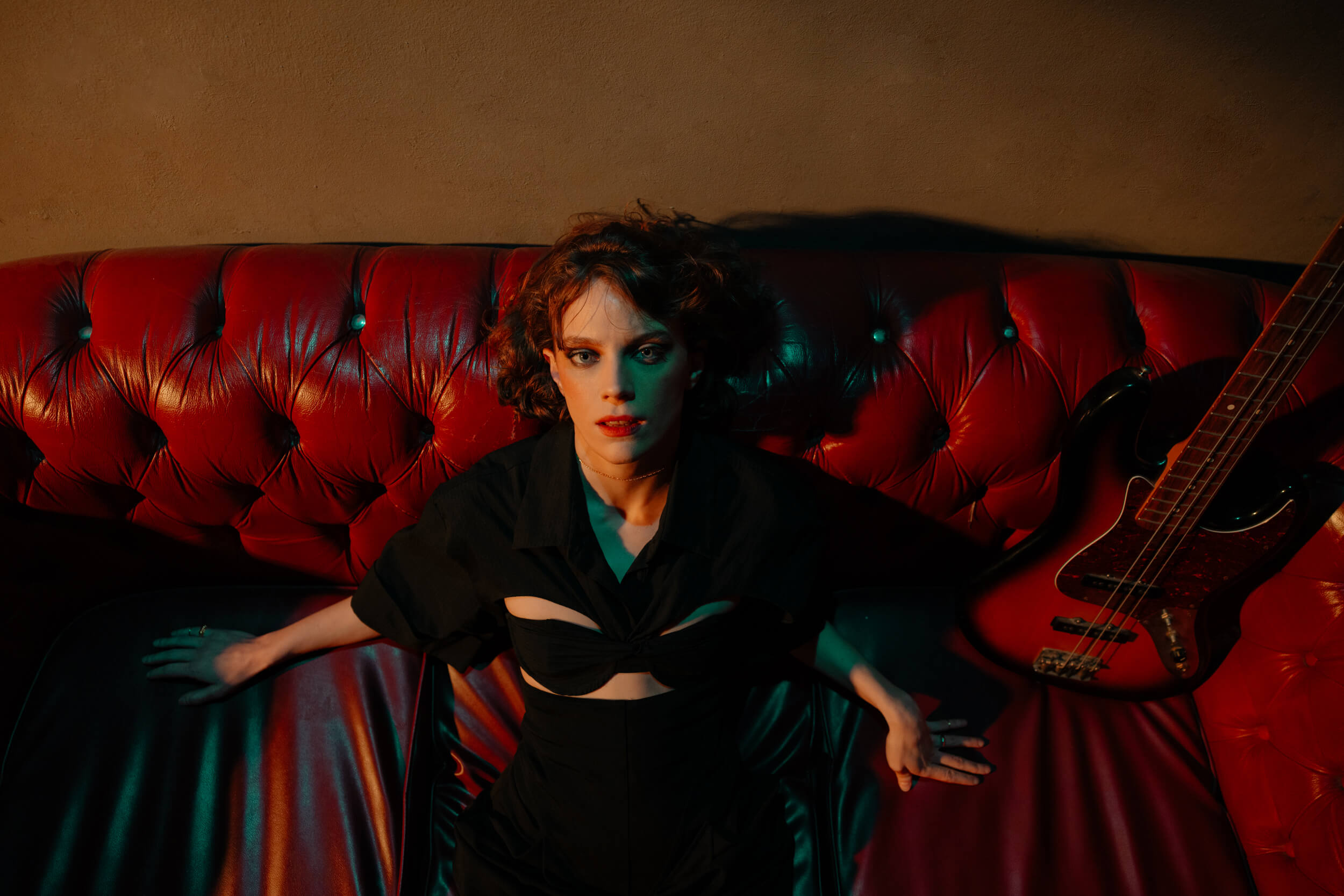
“…security is my search engine, the point where my fire is, the flame that must burn.”
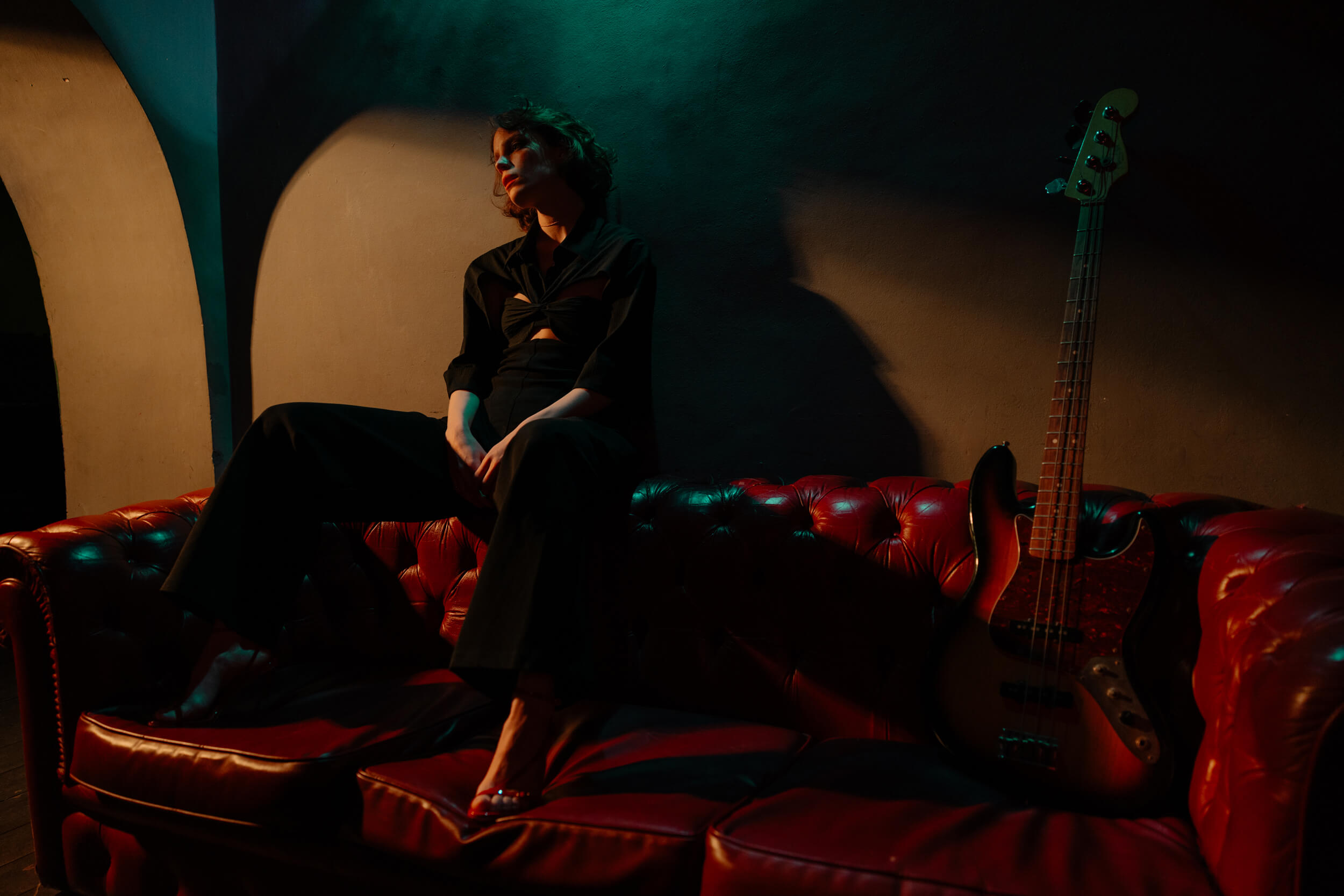
After this experience, have you gained new insights or learned something new about yourself?
I think I must be as unpleasant as Lucia! [laughs]
Here, I realized that sometimes, just like Lucia, I am misunderstood. Many misunderstand Lucia’s determination as a display of superiority, as pushing forward to assert herself, as irreverence. Perhaps, this made me think that sometimes I myself have behaved like this, and many people have thought the same of me… But many misunderstand me, they tell me that the first time they met me, I seemed unpleasant, and when it happens, I panic inside and think, “I’m afraid of the world, I want to run away!”.
Do you have a routine or a particular activity that you do when you need to “recenter” yourself, to find yourself again?
It’s never the same thing, even though it always involves the same world: generally, I really like to draw, color, or build things, do manual things. Maybe because my job is very intellectual and when there is no work, I need to feel that there is something still working inside me. Even writing, sometimes, helps me.
Solitary activities, in short. What is your relationship with solitude? Do you ever seek it out, or is it something you prefer to avoid?
It’s been eight years since I moved to Rome and there is in me a growth movement in which my relationship with solitude is changing: at first, I was afraid of it, I found it ugly and wrong and didn’t want it; then, I started to stay inside it because I needed it to define where Carlotta was and who Carlotta was. Now I have made peace with it, although it remains a complicated relationship: I have learned to love it because I feel, sometimes, that I need it.
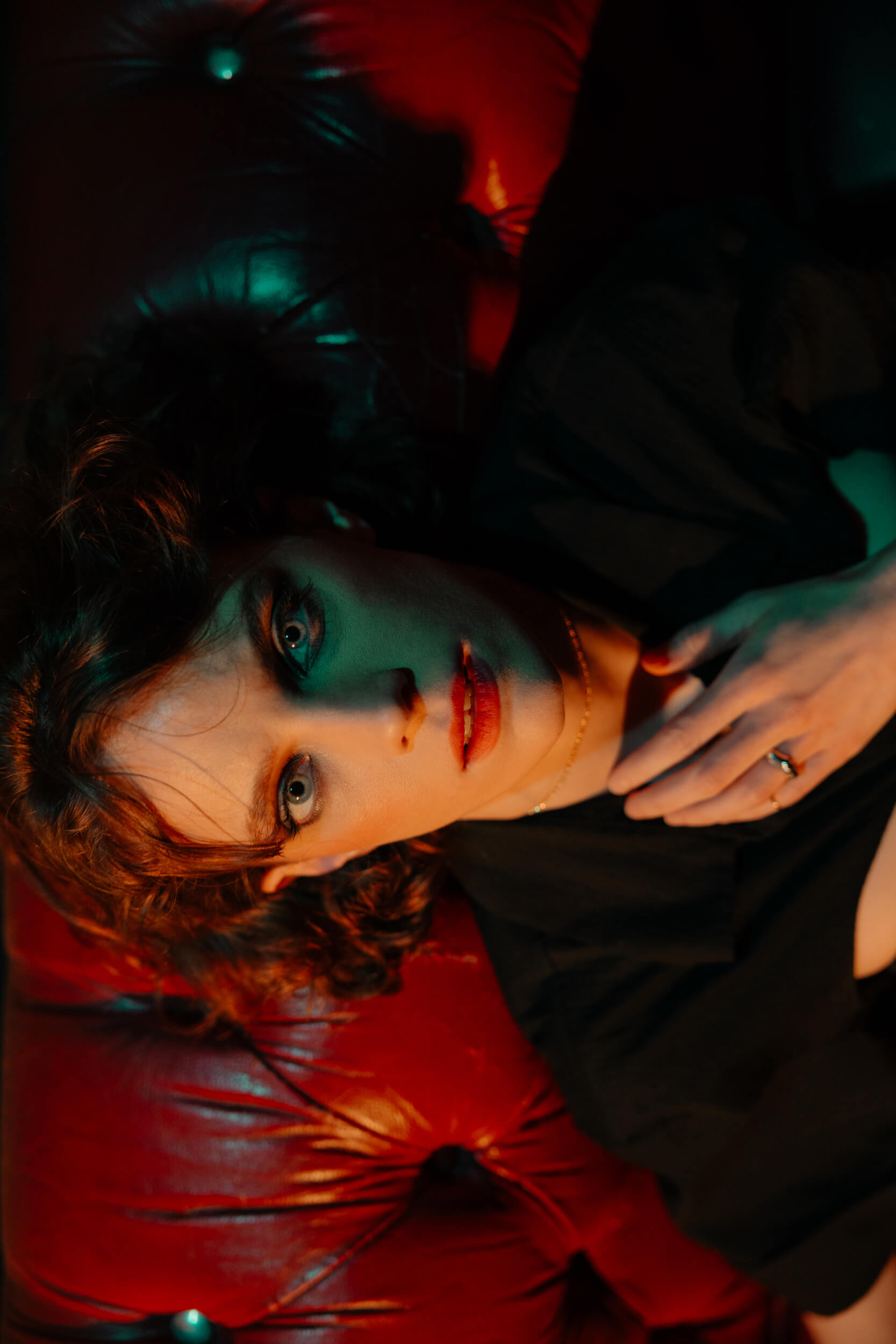
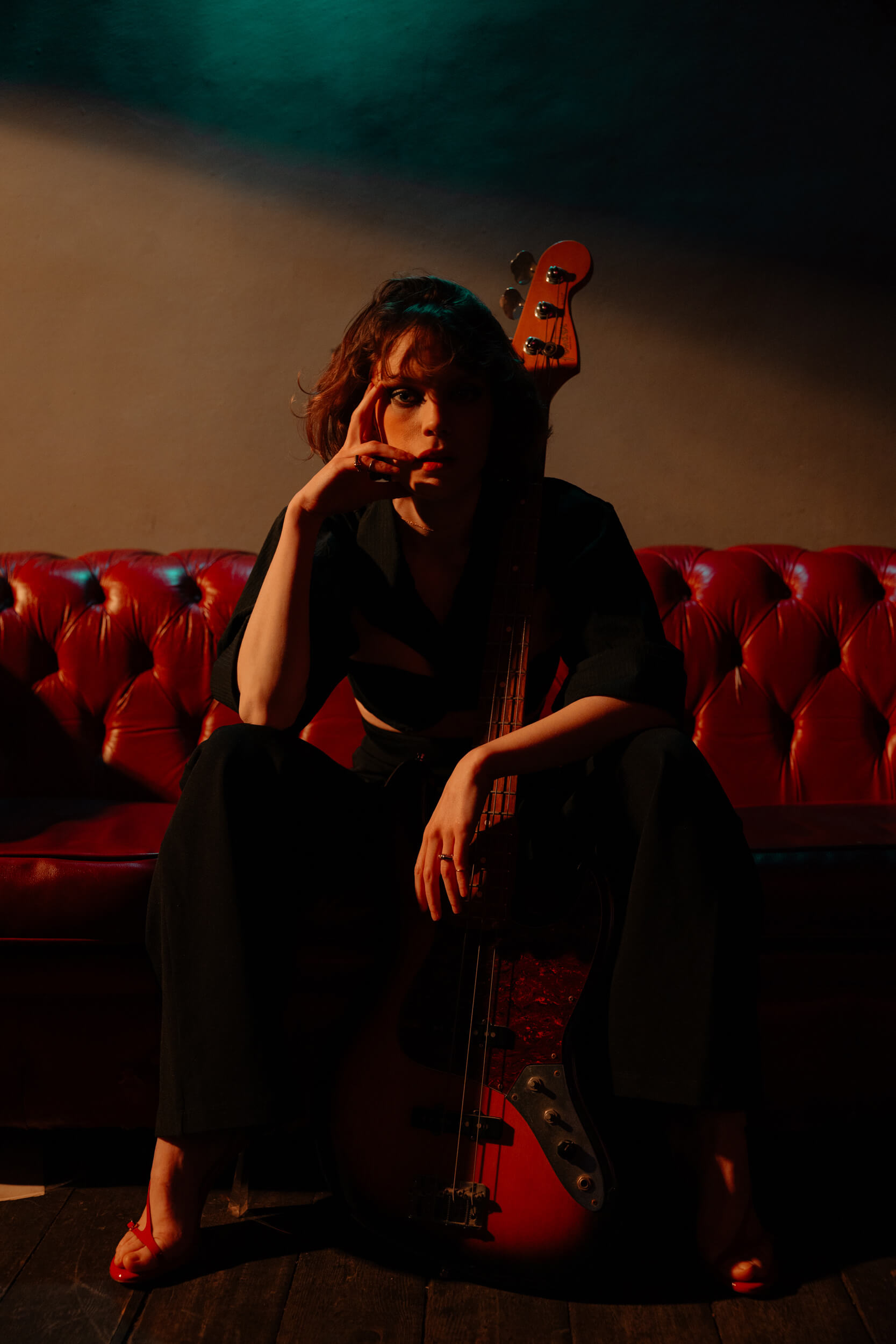
What is “home” for you?
A great dilemma for me. I have a very intimate relationship with the concept of “home”, but I find it difficult to define what it is; I feel a sense of disorientation. It has always been like this, actually, because my parents divorced when I was six months old, I have always had two homes, so for me, it is a difficult topic. I think home is very important, but at the same time, it’s as if I can’t really define what my home is. Even in my journey of growth as a young adult woman, I’m still trying to understand it. I’m trying to build my home, trying to find that place where I feel safe and no longer afraid.
In the end, I believe that “home” is what you put into it: it’s you in a future where all the stars align.
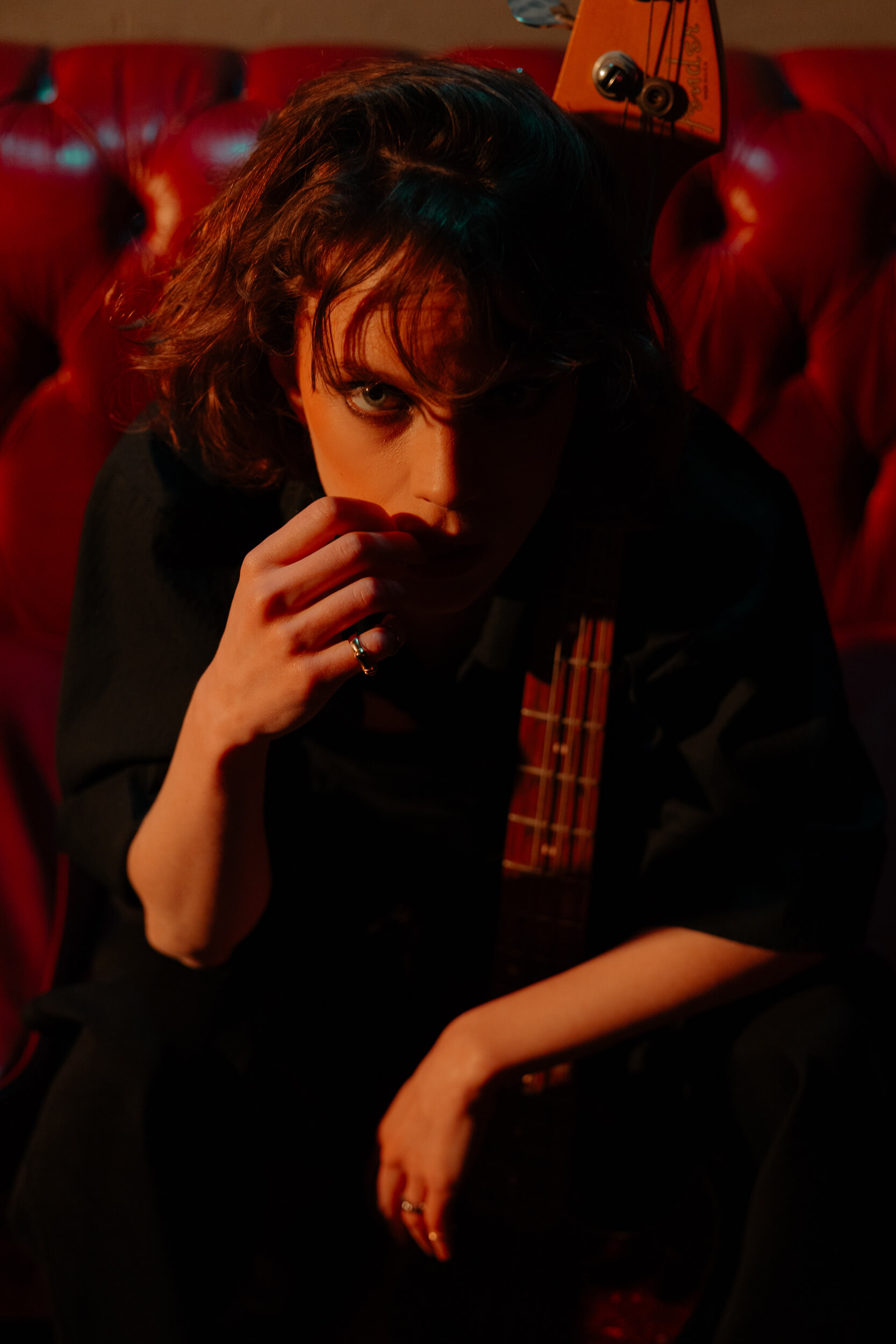
Photos & Video by Johnny Carrano.
Makeup and Hair by Elisabetta Distante.
Styling by Sara Castelli Gattinara.
Assistant stylist Ginevra Cipolloni.
Thanks to Big Star Bar Diner.
Thanks to Other srl.
LOOK 1
Total Look: Antonio Marras
Shoes: Santoni
Jewelry: Lil Milan
LOOK 2
Total Look: Vivetta
Jewelry: Palmatic
LOOK 3
Total Look: Alessandro Vigilante
Shoes: Santoni
Jewelry: Argentoblu

